DENIM PRIVÉ
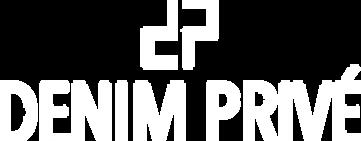



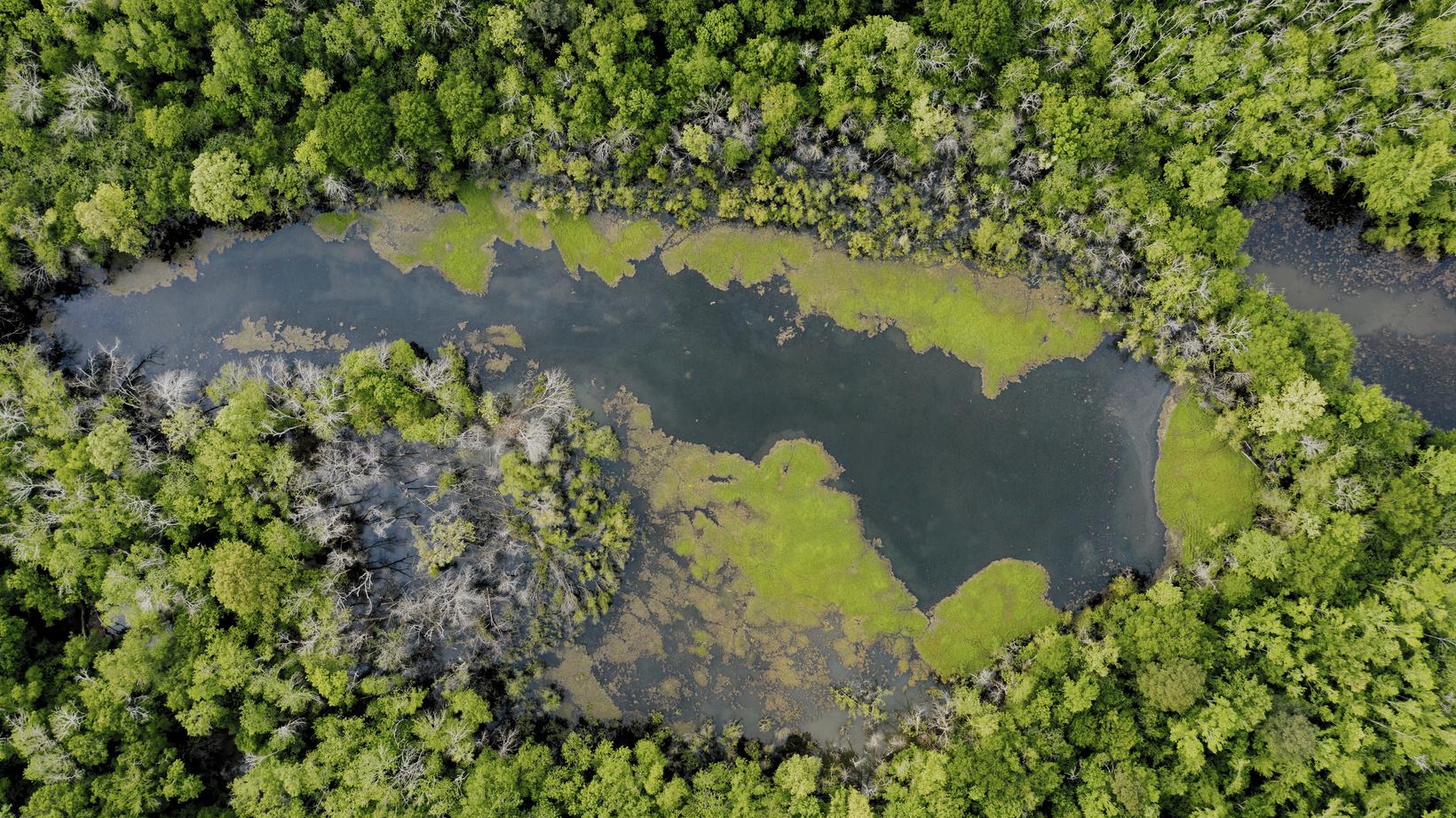
Denim Privé aims to be carbon neutral by 2030, with a target of reducing our carbon footprint (relative to production) by 50% by 2027 (compared to our 2019 baseline). Carbon neutrality is understood as defined by the Paris Agreement and the Science-Based Targets initiative (SBTi).
The 1,609 kW onsite solar farm powered 41.5% of total electrical consumption with clean, renewable energy during peak daylight hours. In 2023, the solar farm produced 2,425,871 kWh. After expansion in 2024 and 2025, there will be an additional 1,480 kW of capacity, which will generate an estimated 83% of total electrical consumption by the end of 2025.
Percent of total electrical consumption provided by the solar farm during peak daylight hours in 2023: 94%.
First LEED Platinum manufacturing facility in Pakistan.
6% reduction in GHG emission per piece in 2023.
Denim Privé’s GHG emission per piece, GHG intensity, went down from 1.369 kgCO²e/pc in 2021 to 1.287 kgCO2²e/pc in 2023. In 2027, the target is 0.6665 kgCo²e/pc.
Denim Privé is a SAC Higg Index Participant.

In 2023, the amount of water used per piece went down by 16.3% compared to 2019.
The percentage of treated wastewater that was successfully discharged relative to the total wastewater produced was 93.7% in 2023, a considerable increase compared to the 2019 baseline of 86.2%.
Denim Privé’s 2023 wastewater efficiency was 77.408 L per piece, which was a 14% increase compared to 68 L per piece in 2022, and a 17% increase compared to 2019.
Denim Privé was Zero Discharge of Hazardous Chemicals (ZDHC) compliant.
In 2023, BCI sourced 86% of our cotton, which was 3% more than in 2022.
Denim Privé used 329,955 metres of recycled cotton in denim production in 2023, this is a 48% increase compared to the 157,745 metres of recycled cotton used in 2022.
Screened Chemistry increased to 22% in 2023 because suppliers of dyes and auxiliaries improved. Screened Chemistry was not tracked before 2022 due to the scope of the previous version of ZDHC. The goal to increase to 20% by 2023 was surpassed.

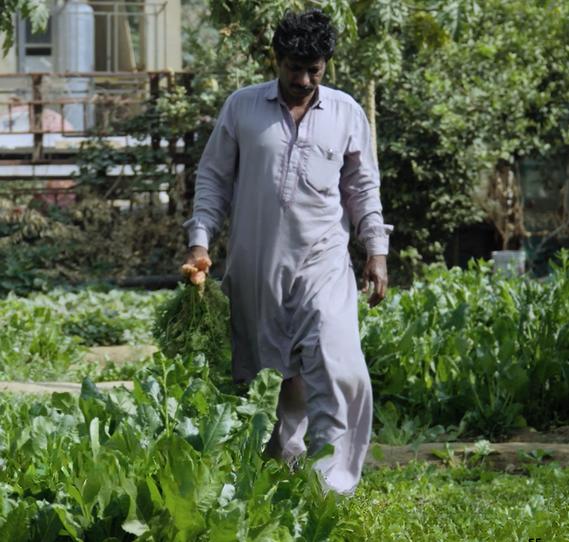
The Denim Privé community consisted of 3,685 employees as of December 2023.
403 new team members were hired over the course of 2023.
27% of total new hires were female.
30 women enrolled in the Lifelong Learning Initiative.
100% of our employees are located in Pakistan, with the exception of a few sales agents and designers.
100% of our employees are properly trained and covered by the Occupational Health and Safety (OHS) Committee.
Denim Privé provides funding for 44 free medical clinics and schools throughout the city of Karachi for employees, their families, and residents.
Benefits include: free transport, social security, pension payments, and subsidised food at our cafeteria to full-time permanent Denim Privé employees.
All Denim Privé employees have access to the in-house Health Centre, where experienced doctors and paramedical staff are available to treat our employees.
Denim Privé enrols employees at the Employee Old Age Benefit Institution (EOBI) and contributes every month.
Denim Privé enrols employees at the Sindh Employees' Social Security Institution (SESSI) and contributes monthly to support them with benefits such as medical care facilities and cash benefits for workers and their dependants.
Denim Privé follows the local provincial "The Sindh Factories Act 2016" for work environment standards.
There was a blood donation drive in collaboration with the Indus Hospital in 2020 and 2023.
Industrial visits for students and learning promotion amongst employees is encouraged and supported through certifications and degrees via Denim Privé’s educational sponsors, the Aptech Institute and the Pakistan Institute of Management.

The year of 2023 has been a year of searching for stability and growth in new directions as economic, political, and environmental realities rage on. In its fifth year as an established company, Denim Privé has pushed forward to find innovative and sustainable ways to respond to the fashion industry’s ebb and flow of demand, production and resources.
This year we publish our third sustainability report. These reports are the manifestation of the sustainable dream I set out to create here at Denim Privé. It’s been an elucidating year as we drive forward towards goals that, at times, feel impossible and, at times, when we are holding the result of tireless hours and burgeoning collaborations, feel within reach.
The deeper we go into sustainability work the clearer it is that it’s going to take all of us along the supply chain working together. One company alone or one step along the way isn’t going to be enough. And yet, what we’ve been able to accomplish even with our footprint has been humbling. Especially when we look at the people of Karachi who work for us and take part in the surrounding community.
All of us producers in the denim industry push each other to not simply rely on the way things have always been done. It is a privilege to watch Denim Privé rise to the occasion and prompt questions in our peers about how things can be done better. Sustainability isn’t an isolated department, it’s something incorporated throughout the entire business process.
The Paris Agreement and the Science-Based Targets initiative (SBTi) set targets to reach carbon neutrality by 2050 and to keep global temperatures within 1.5-2 degrees Celsius of pre industrial levels. At Denim Privé we are on track not just to follow but to lead with our sights set on carbon neutrality by 2030.
The report covers every area that Denim Privé impacted in 2023 climate, electricity, biodiversity, people, water, waste. The data is packed in this comprehensive report. And whatever isn’t here, we are working on it and look forward to sharing as soon as we can claim it. Putting together this report is an opportunity every year to see what we’ve accomplished in a year and to reevaluate our goals. This report talks about where we are now, where we will be in the short term, and where we are headed within the greater global context.
2023 wasn’t just a year of sustainability reporting, but also the implementation of exciting innovations, new collaborations, more Changemakers podcast episodes and conversations, and a second edition of the Changemakers magazine where we explore the concept of the Wellbeing Economy.
We hope you see the love we have for denim and for the world in each piece of data and in each effort we make to share what we did in the year of 2023. While this is my personal voice as the leader of Denim Privé, it is the voice that I find echoing in the excellent workers and beautiful people that operate on the floor and in the studio here at Denim Privé. We love our lands, our waters, our children, and our future. There’s much more to do and we are eager to rise to the occasion. This is our 2023 sustainability report.
Yours sincerely,
 Arsal Kassim
CEO and Creative Director at Denim Privé
Arsal Kassim
CEO and Creative Director at Denim Privé

Established in 2018, Denim Privé is a vertically integrated unit of the Kassim Group. Kassim Group is a family business with a thirty year legacy of denim fabric production. This serves as the solid foundation for Denim Privé, the garment manufacturing offshoot, that continues the commitment to sustainability and innovation.
In order to create a circular system of earth-first couture, Kassim expanded into apparel in the form of Denim Privé. The collaborative and transparent system drives the industry toward responsible and intelligent production and consumption.
The Kassim Group operates in various industries with vast experience in finance, real estate, telecommunications, and textiles. The Group’s strength across all these businesses is their leadership and management skills in ‘people-intensive’ businesses.

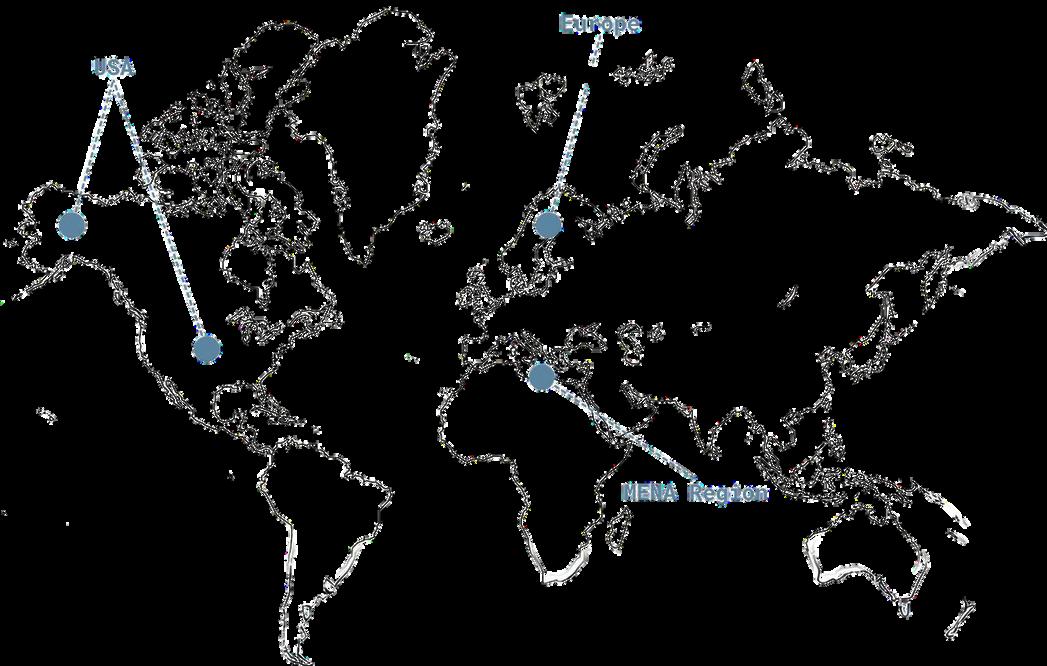
AT DENIM PRIVÉ, WE ARE FOCUSED ON THE RESPONSIBLE PRODUCTION OF ECO-ADVANCED DENIM AND APPAREL, AS WELL AS THE DEVELOPMENT OF INNOVATIVE SUSTAINABLE MATERIALS AND PRODUCTS.
We meticulously research and develop ecologically sustainable denim, serving some of the finest ‘denim-centric’ retailers globally. European runways and cosmopolitan boulevards across the globe feature our products, from streetwear to haute couture. Denim Privé serves customers from the USA, Europe, and the MENA Region.
Denim Privé is a family-owned business, which drives care for our products, people, communities, industry, and the environment into everything we do.
As a purpose-driven company, we prioritize the growth of our business and the advancement of our industry with a focus on our people and the planet. We aspire to go beyond the functional aspects of our products and become the preferred choice for premium brands and retailers by being one of the world's most sustainable and inventive apparel producers.



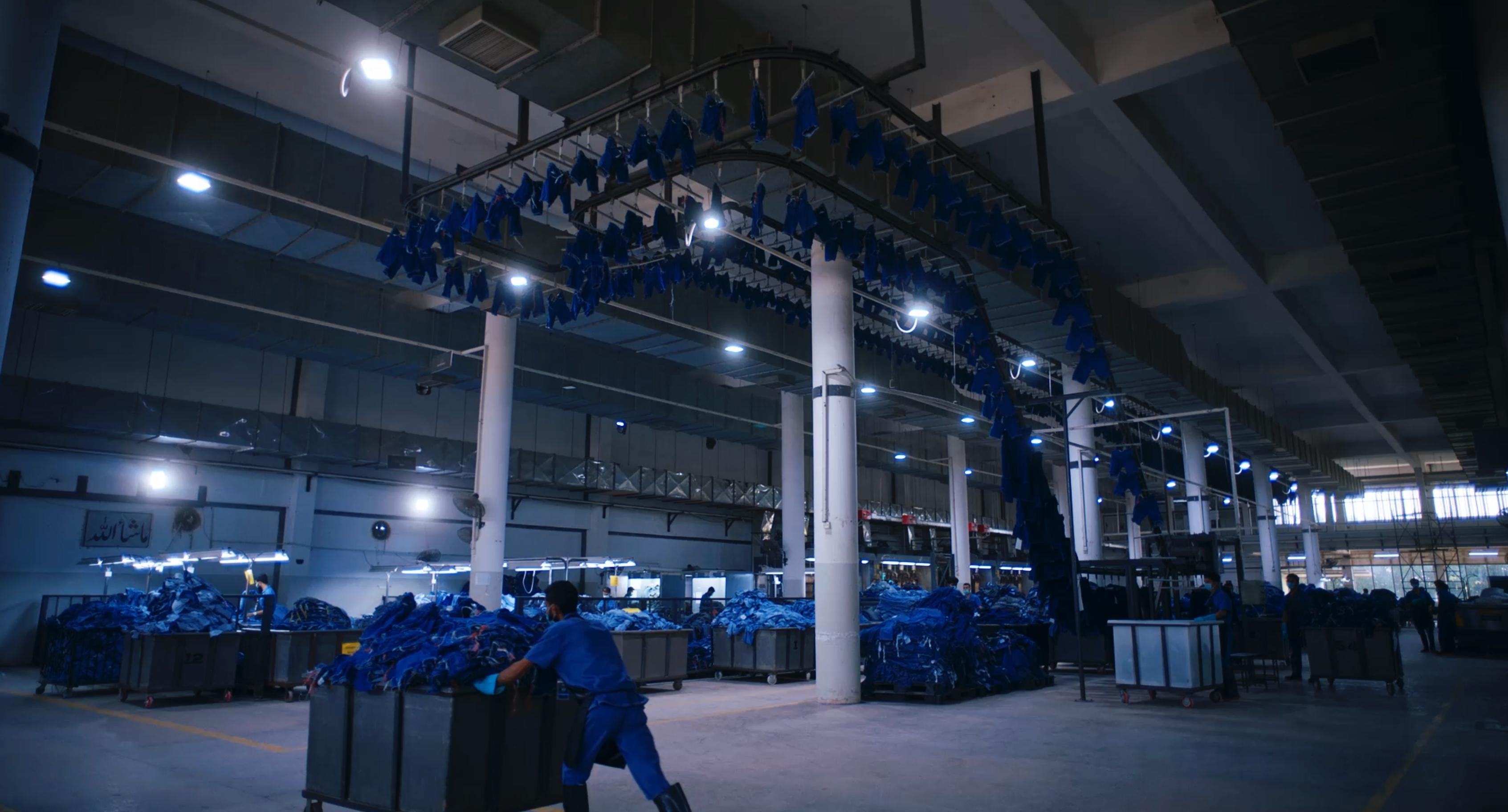
466,050FT²
1ST

of its kind to achieve LEED Platinum certification in Pakistan. is the size of our environmentally advanced manufacturing facility.
4,602,626
pieces of denim and apparel
was produced by Denim Privé in 2023.
Our facility implements cutting-edge technology, innovative processes, and low-impact techniques to produce highquality denim and apparel for leading brands such as C&A, Tom Tailor, Kontoor, and Next. Furthermore, we collaborate with our partners and stakeholders to develop new innovative sustainable materials and advance the industry towards a sustainable future.
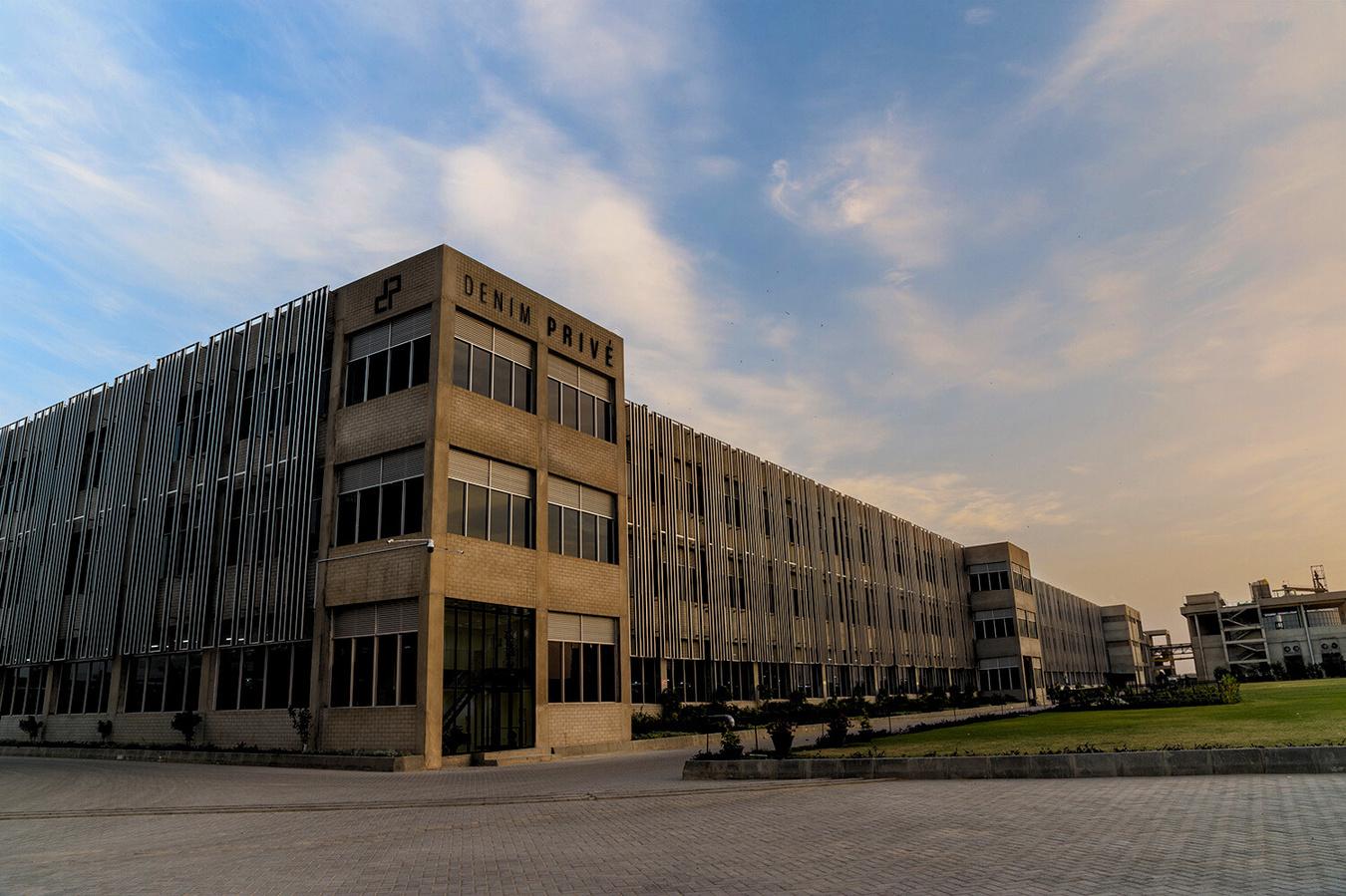
Denim Privé’s third sustainability report is filled with details about our performance across critical sustainability issues essential to our business and stakeholders. This report shows data metrics for where we are, goals for where we want to go, innovations that will get us there, and the foundational principles that make up our sustainable strategy. Performance data is based on the period from January 1st to December 31st, 2023 and will be updated annually.
The data exhibits the ESG performance of the 466,050 ft² Privé Campus. This report was developed per GRI Standards, aligns with SASB standards and metrics, and links to several United Nations Sustainable Development Goals (SDGs).
We developed this report following the GRI's Reporting Principles for defining report content: Materiality, Stakeholder Inclusiveness, Sustainability Context, and Completeness. We then carefully applied these GRI principles to our sustainable management processes.
While sustainability reporting is currently on a voluntary basis —though we want to make it clear that we view it as our basic responsibility— we have done our best to standardise how we report so that we don’t leave anything out, so we are understood in our communication of it, and so we develop an ability to uphold and track our progress over time.
Our view of sustainability is holistic and we evaluate the topics of water, energy, climate, biodiversity, waste, innovations, technology, people, etc. in a climate, consumption, and community framework. It’s a very active time for standardisation in the industry as more companies adopt sustainable practices and as regulatory bodies across the European Union, the United States, and elsewhere are pushing and defining what sustainability looks like and how companies can claim it. We hope this report gives a sense of the depth and rigour of the standard we are setting for ourselves and the garment industry. We also make sure to reference the greater global dialogue, regulations, and standards, and how Denim Privé compares. It has given us and our stakeholders a clear view into how the business is doing and where we hope it goes.
All comments and questions regarding this report are welcome, as feedback from our stakeholders helps drive continual improvement. Please write to ecology@denimprive.com.
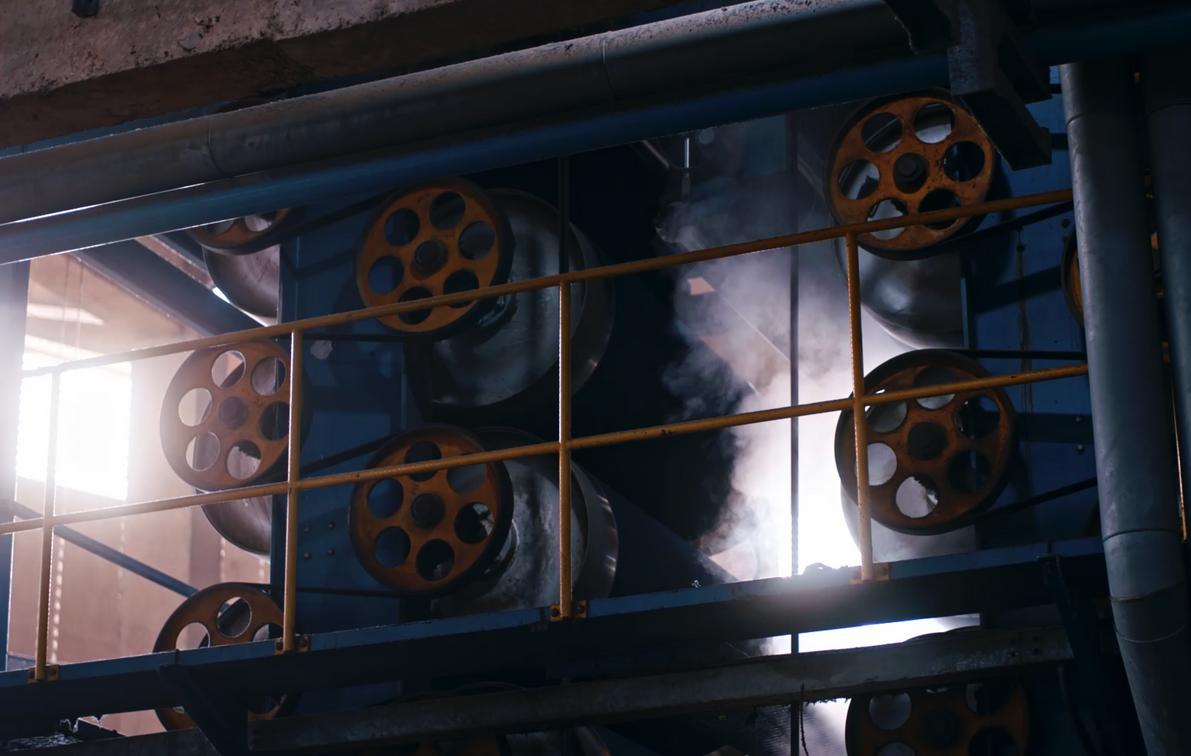
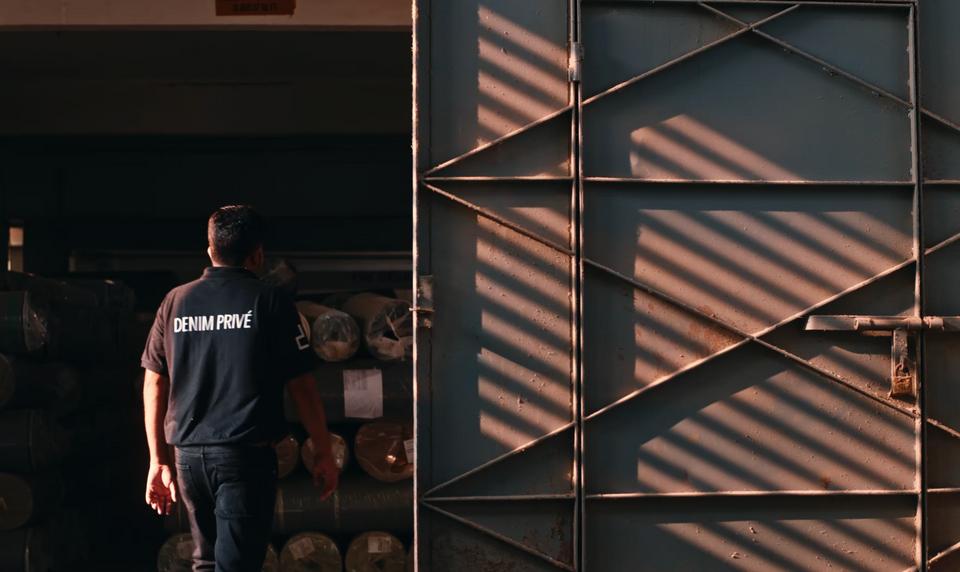
Sustainability is at the core of Denim Privé. Without our sustainability considerations, we don’t exist. We aim to produce environmentally advanced denim and apparel by developing innovative new products and materials, implementing cuttingedge technology, and collaborating closely with our peers, customers, and partners.
Our goal is to help drive the industry away from traditionally impactful production and towards more earth-friendly methods.
We have built sustainability considerations into our business from the moment of its inception, beginning with the design and construction of one of Pakistan's most sustainable apparel manufacturing facilities. We’ve then carried our sustainability concerns and solutions into our collaborative partnerships and supply chain. This is the culmination of our mission to be one of the most innovative, efficient, and responsible apparel manufacturers globally while eliminating negative environmental impacts and raising the fashion industry's standards.
At Denim Privé, we use our role and influence as a manufacturer to drive the industry towards more responsible production and consumption.
We are confident in our business strategy because we’ve based it on the foresight that consumer purchasing decisions will be shaped by environmental and social considerations more and more.
AS A RESULT, SUSTAINABLE PRODUCTION WILL BECOME ——IF IT ISN’T ALREADY—— A PREREQUISITE FOR A SOCIAL LICENCE TO OPERATE.
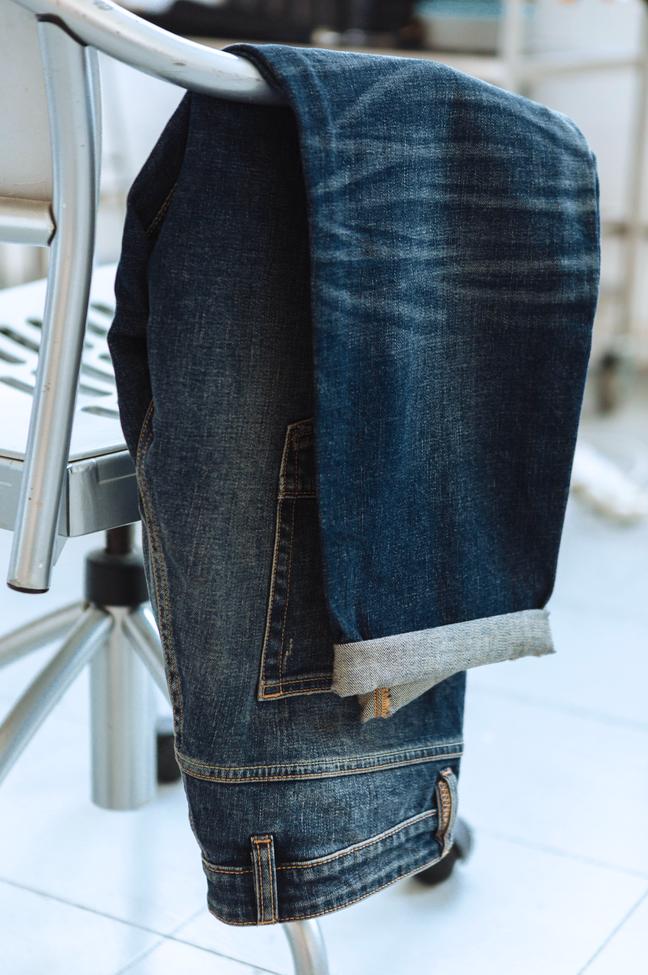

We align ourselves with the global environmental and social outlook issued by the United Nations in their Sustainable Development Goals. They highlight water shortage, climate change, and industrial pollution as potential crises and focus areas for a more sustainable planet.
We support the advancement of these goals and continuously work to minimise the effect of our products on the environment and society.
Global Reporting Initiative is an independent, international organisation that provides a common global language for businesses to communicate their impacts on the world. Denim Privé uses GRI Standards to show how our business is performing in a comparable way.
Sustainable Accounting Standards Board is yet another standards-setting organisation that Denim Privé leverages to properly disclose sustainability risks and opportunities, such as management of chemical products, environmental impacts in the supply chain, and labour conditions in the supply chain.
At Denim Privé, we advocate sustainability not only as a matter of responsible fashion but as a matter of survival at this crucial environmental and social juncture.
Denim Privé is currently organising a Sustainability Committee to integrate the consideration of economic, environmental, and social issues into decision-making, operations, and business processes. In addition, we have a dedicated Occupational Health and Safety Committee that helps create a safer work environment for all employees.
Our sustainable business strategy is based on the five pillars of materiality: resource efficiency, social responsibility, collaboration, innovation, and transparency. Categorised by subject matter, these pillars are best encapsulated by climate, consumption, and community.
At Denim Privé, our approach to sustainable management and strategy is to focus our efforts on the sustainability issues that are the most relevant to our business, industry, and key stakeholders.
These issues represent those with the most significant potential to be impacted by and to impact our business and stakeholders. They then become the areas where we can catalyse the most impactful, positive change.
Focusing our strategy on select issues ensures that our efforts are not too diffuse to be effective and that we are responding to the areas of greatest need. We concentrate on the areas where we can most effectively leverage our operations, products, and influence to create meaningful, progressive, and lasting impact.
Focusing on the most material issues will help establish:

We identified material sustainability issues through thorough stakeholder mapping, ranked materiality assessment exercises, and specific issues based on their importance to stakeholders and relevance to our business. This process ensures that we address the concerns and priorities of our stakeholders, as well as the issues that help drive our vision to make Denim Privé an industry leader in sustainability and gain resilience in a resourceconstrained future.
Each issue deemed material has been ranked and categorised as important, critical, or highly critical. All critical and highly critical issues are assigned KPIs against which we measure and disclose our performance.
Our top priorities and key focus areas for our collaboration and innovation efforts are highly critical issues. Performance metrics align with SASB, GRI, and the UN SDGs. Employees Contractors Regulators Cotton Farmers Suppliers

Occupational Health & Safety
Employee Rights
Chemicals
Environmental Impacts(SC)
Sustainable Materials
Waste Management
Water Consumption
Energy & Climate
Wastewater Management
Innovation & Collaboration
LCA
Economic Performance
Business Ethics
Human Rights
Labour Conditions(SC)
Employee Development
Biodiversity
The materiality matrix above exhibits our critical and highly critical issues relative to their importance to our business and stakeholders. As the fashion industry and our business contexts evolve, we will update the materiality matrix as necessary.

The design of our operations and manufacturing processes optimise production output relative to environmental resource consumption and waste production. We achieve this by implementing the most cutting-edge technology, efficient equipment, and innovative techniques.
Our products are designed with sustainability in mind to maximise efficiency and minimise environmental impacts. We strive to produce more of our products with less energy, materials, waste, water, and hazardous chemicals. We carefully measure and track our environmental performance and set targets to ensure continual improvement. The environmental performance of our products and processes exhibits our commitment to a sustainable future.
Integrating and advancing resource efficiency and true sustainability into apparel manufacturing is an undertaking that requires both creativity and a deep understanding of materials’ impacts, lifecycles, and interactions with the world and society. Therefore, we meticulously research sustainable initiatives and engineer these aspects into our manufacturing techniques and fabrications.
As a result, we produce premium quality, ethically glamorous denim that is highly desirable to an industry that increasingly values sustainable products.
Denim Privé operates in the best interest of our social stakeholders, from our employees and local communities to the workers throughout our supply chain and the end consumers of our products.
We are committed to operating in a socially responsible manner in all our business dealings and addressing the social issues that are most relevant to the fashion industry.
Such issues include labour rights, working conditions, employee development and wellbeing, occupational health and safety, and business ethics.
More information on how we manage and measure social responsibility is detailed later in this report in the Supply Chain and Our People sections.
While we measure, track, and improve our environmental footprint, our sustainability strategy extends well past our operations. Collaboration and innovation are crucial aspects of our business culture and mission. As visionary thinkers, we embrace challenges together and meet the evolving needs of this versatile industry by remaining open to new opinions and ideas. We do this by creating an atmosphere of trust and inspiration.
Denim Privé intends to act as both an incubator and implementer of innovation. Our business will be a catalyst for positive change that will benefit our stakeholders, the fashion industry, and the world at large.
We operate with the understanding that true innovation and ascension to the next level of sustainability cannot be achieved alone or in isolation. As such, from the outset, we built a culture of collaboration that focuses on collectively developing ecologically conscious apparel. As the fashion industry evolves and denim ownership increases, we adapt our operations and showcase timely innovations that push denim’s momentum forward towards a more sustainable future for our industry.
The pillars of resource efficiency and innovation go hand in hand. As such, Denim Privé positions itself as the sustainable standard by leveraging sustainable innovation and technologies to reduce impacts and optimise resource efficiency.
DENIM PRIVÉ IS COMMITTED TO A FULLY TRANSPARENT OPERATION.
As such, we carefully measure, track, and disclose our performanc against key ESG metrics and industry standards. This effort expands past GRI reporting as we participate in industry-wide efforts to encourage, expand, and streamline the transparent communication of sustainable performance and responsibility.
Furthermore, we encourage our key suppliers to disclose their key performance metrics and to contribute to a more transparent fashion industry. As a testament to this commitment, Denim Privé has been a participant in the Sustainable Apparel Coalition’s (SAC) Higg Index since 2019.

Denim Privé has been a participant in SAC Higg Index since 2019.
The SAC is a global, multi-stakeholder non-profit alliance for the fashion industry. The SAC comprises over 250 leading apparel, footwear and textile brands, retailers, suppliers, service providers, trade associations, non-profits, NGOs, and academic institutions working to reduce environmental impact and promote social justice throughout the global value chain.
The SAC developed the Higg Index and offers a suite of tools that standardises and streamlines value chain sustainability measurements for all industry participants. These tools measure environmental and social labour impacts across the value chain, providing much-needed data and transparency to the fashion industry. Moving forward, Denim Privé intends to increase its collaboration with the SAC as a Corporate Member of the coalition.
Denim Privé is 1 of over 250 leading businesses working to reduce the environmental impact of the supply chain.

Behind our sustainable business strategy and management approach are our core ideology and values, which align with our business practices and inform everything we do.
Our five key values are outlined on the next page:

CONTINUOUS LEARNING AND SELF-IMPROVEMENT IN ALL
THAT WE DO means we don’t shy away from trying new things or allowing for flexibility in what we do. WE ARE NEVER SATISFIED. We INNOVATE RELENTLESSLY. We empower CREATIVE EXPLORATION WITH GREATER RESPONSBILITY. We welcome thinking outside the box and encourage our value chain to create the solutions of the future right along with us.
WE GO THE EXTRA MILE TO MAKE OUR CUSTOMERS HAPPY. Staying informed with the fashion industry makes us highly adaptable to what our customers, collaborators, and employees need from us.
MAKE THE WORLD A BETTER PLACE. This is our beating heart. We are responsible for what we bring into this world and that means STRENGTHENING THE SOCIAL FABRIC OF SOCIETY & MAKING OUR PLANET MORE HABITABLE.
WE DON'T FOLLOW. WE LEAD THE MARCH. WE COME UP WITH UNCONVENTIONAL IDEAS. Breaking away from conventional methods means forging paths no company has gone down before. We are willing to put in the work to DO WHAT OTHERS CONSIDER IMPOSSIBLE AND FIND SOLUTIONS WHERE they don’t seem to exist.
Climate change is one of humanity's greatest threats and the fashion industry is one of the greatest contributors. Reducing impact is a multipronged approach—supply chain, water consumption, energy consumption, and greenhouse gas (GHG) emissions. The goal is to account for every resource used and for the impact they have on the planet. Climate impact is best understood through a carbon footprint measurement made up predominantly of energy consumption and greenhouse gas (GHG) emissions.
A low-carbon future means Denim Privé, supply chain collaborators, and other industry stakeholders work together to drive a holistic effort for a healthier planet.
The goal: To produce the world’s most sustainable denim and apparel company.
But what does this goal mean and how will Denim Privé get there?
Denim Privé aims to be carbon neutral by 2030, with a target of reducing our carbon footprint (relative to production) by 50% by 2027 (compared to our 2019 baseline).
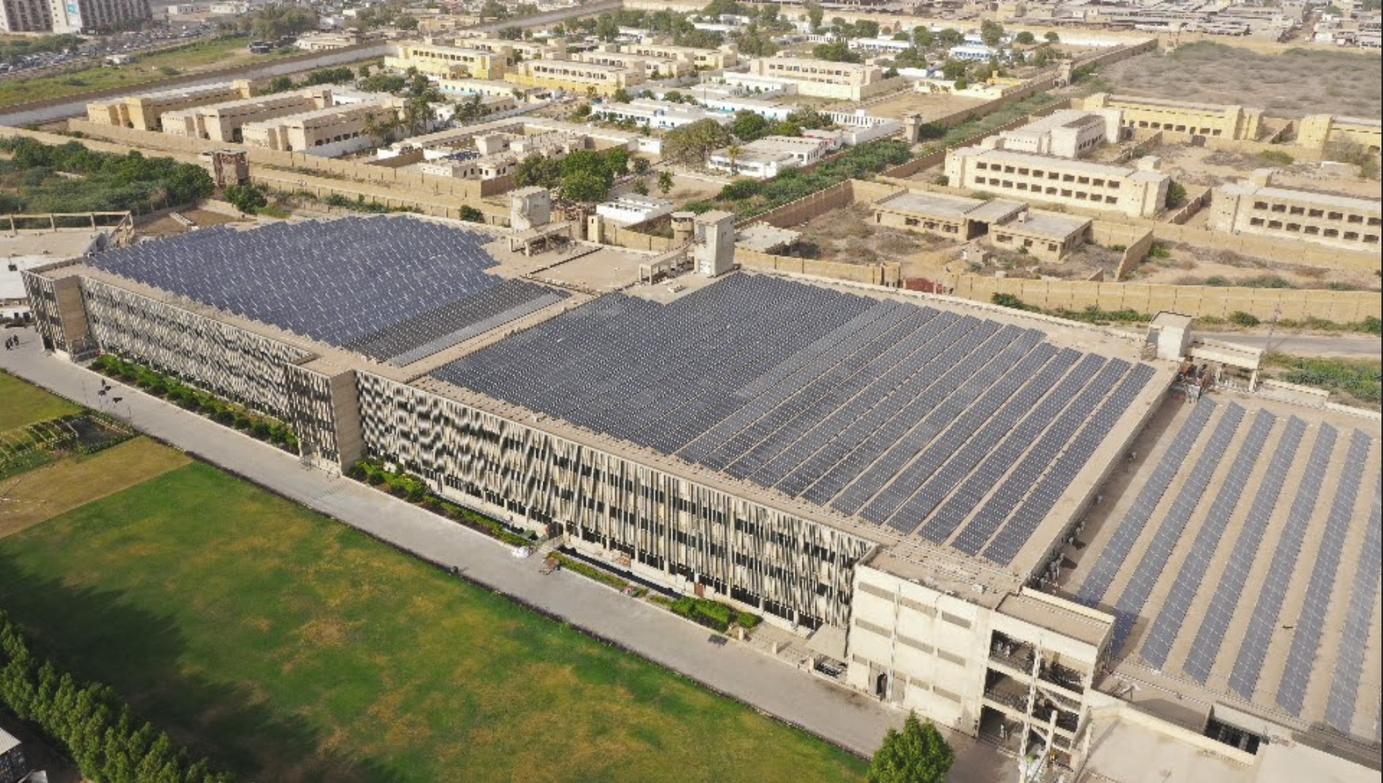
THROUGH THE USE OF CLEAN, RENEWABLE SOLAR ENERGY PRODUCED ONSITE, THE IMPLEMENTATION OF INNOVATIVE, CUTTING-EDGE TECHNOLOGY, PROCESSES, AND THE SUSTAINABLE DESIGN OF THE PRIVÉ CAMPUS, DENIM PRIVÉ IS WELL ON THEIR WAY.
Are Supported By:

The sustainable design and maintenance of the Privé Campus

The installation and expansion of onsite renewable energy production

The selection of strategic materials and suppliers

The implementation of innovative technologies


Process improvements Real-time monitoring of energy consumption and GHG emissions
Denim Privé’s targets significantly exceed the targets of the Paris Agreement and the Science-Based Targets Initiative (SBTi). The targets set in the Paris Agreement and the Science-Based Targets initiative (SBTi) are carbon neutrality by 2050 and global temperatures within 1.5-2 degrees Celsius of pre-industrial levels.
Denim Privé will have its operations certified carbon-neutral based on the PAS 2060 standard.
Here are Denim Privé’s climate metrics for the year 2023 as determined by GHG emissions.
The GHG protocol uses GHG emissions to measure environmental impact. This is a great metric because of data availability, correlations with energy use and with other environmental impacts. However, Denim Privé supplements this data by communicating metrics along other factors, such as water, in other sections of this sustainability report.
In 2023, Denim Privé produced 5,933.92 Mt CO².
Scope 1: These are emissions directly from sources that Denim Privé owns and controls.
Scope 2: These are indirect emissions from purchased energy.
Scope 3: These are indirect emissions (not accounted for in scope 2) that occur upstream and downstream along the value chain. Basically, this is the measure of emissions along the supply chain. The study in 2023 did not include scope 3, but there are plans for Denim Privé to have this studied and measured in the future.
Denim Privé’s strategy to improve our advanced energy and GHG performance:
Monitoring energy consumption performance and identifying opportunities for improvement.
Implementing innovative technology and improving manufacturing processes.
Producing and consuming onsite solar energy.
Analysing Scope 3 emissions to understand full impact and find new areas to target for reduction and improvement.
Executing these strategies, we aim to achieve climate neutrality and exhibit industry-leading energy performance. Ultimately this will raise the bar for the fashion industry and show our peers that denim and apparel production does not need to come at the cost of the climate and future generations.

The Privé Campus features a system of electrical metres that measure and monitor building-level and system-level consumption in real time. This detailed data supports our energy management policy and helps identify cost-optimal energy and cost-conservation opportunities.

Denim Privé continually researches, develops, and implements new technologies and process improvements that reduce energy consumption and improve efficiency. The Technology and Innovation section contains further information.
The 1,609 kW onsite solar farm, which produced 2,425,871 kWh in 2023, powered 41.5% of total electrical consumption. We are expanding the installation in 2024 and 2025 with an additional 1,480 kW of capacity, which will generate an estimated 83% of total electrical consumption by the end of 2025.


By gathering scope 3 GHG emission data, Denim Privé can incorporate supply chain emissions into our calculations. It is common for scope 3 to provide a fuller image of a fashion company’s impact and Denim Privé looks forward to gathering this data.

The current solar farm capacity is 1,609 kW.

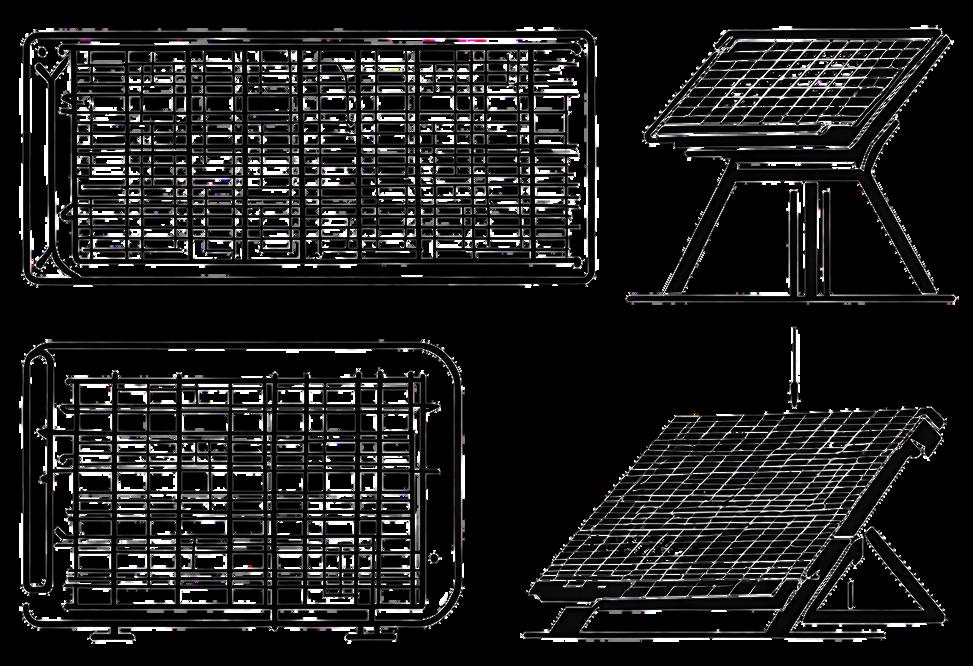
After the expansion, the solar farm capacity will be 3,089 kW.
The current solar farm produces 41.5% of total electrical consumption and 94% of total electrical consumption during peak daylight hours.

oduce 83% of total electrical consumption and 186% of total electrical consumption during peak daylight hours with the excess going back to the grid.
Denim Privé consumes energy in the form of electricity from the grid, onsite solar production, liquified petroleum gas (LPG), and purchased steam. The figure shows the percentage breakdown per piece produced by energy type consumed in the year 2023.
*All energy consumption data has been converted to gigajoules (GJ) using standard conversion methods for accurate comparability.
Total energy consumption in the last two years was 72,243 gigajoules (2021) and 71,779 gigajoules (2022). In 2023, total energy consumption was 84,053.45 gigajoules.
Target percentage of electrical consumption from clean, renewable sources by 2025
41.5
% %
Percentage of total electrical consumption currently provided from clean, renewable sources
Our operations' energy and carbon performance is measured based on total energy consumption, energy intensity, percent of energy consumption from renewable sources, and direct and indirect GHG emissions (Scopes 1 and 2). Improvements are measured relative to the 2019 baseline.
RENEWABLE ENERGY AND ENERGY EFFICIENCY SUPPORT OUR SUSTAINABILITY GOALS AND HELP DENIM PRIVÉ REDUCE COSTS AND IMPROVE OUR FINANCIAL BOTTOM LINE. THEREFORE, THEY ARE INVESTMENTS IN OUR BUSINESS AND OUR SUSTAINABLE FUTURE. FOR EXAMPLE, OUR ONSITE SOLAR FARM HELPS REDUCE OUR ENERGY CONSUMPTION FROM THE GRID, PROVIDING SIGNIFICANT ANNUAL SAVINGS ON ENERGY COSTS. FURTHER, DURING THE LEED CERTIFICATION PROCESS, IT WAS ESTIMATED THAT AN ENERGY-EFFICIENT FACILITY DESIGN WOULD SIGNIFICANTLY LOWER YEARLY ENERGY COSTS COMPARED TO THE ASHRAE BASELINE.
The Privé Campus design minimises lifecycle GHG impacts from the selection of low-carbon building materials to the onsite production of solar energy. Further, we constructed our facility with carefully selected envelope materials that optimise thermodynamics, helping to maintain a comfortable working environment for our employees, and minimising energy consumption from HVAC. For example, it features innovative aerogel-filled bricks for efficient insulation and energy performance compared to conventional buildings. These features make our campus one the most innovative and advanced of its kind in terms of energy efficiency and GHG emissions.
Privé Campus has been certified by the USGBC as the nation’s first LEED Platinum facility.
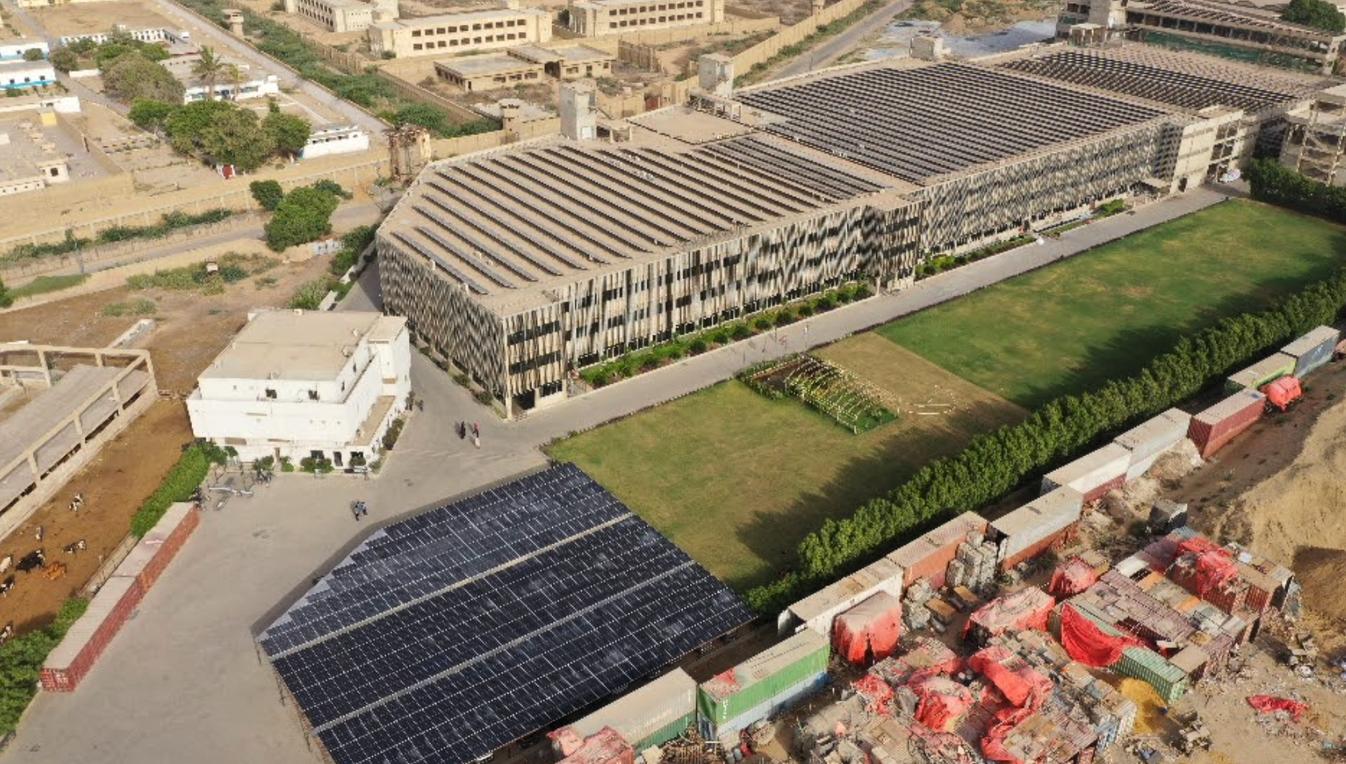

GHG is one of the two biggest measurements that let us know how we’re doing in terms of our carbon footprint. Our GHG emissions are a measure of the emissions associated with our onsite operations and energy consumption. It informs us and the industry about where we are in terms of impact and where we hope to go in terms of improvement.
Denim Privé’s GHG emission per piece, GHG intensity, went down from 1.369 kgCO²e/pc in 2022 to 1.287 kgCO²e/pc in 2023 (which is a 6% reduction). In 2027, the target is 0.6665 kgCO²e/pc.
As we continue to improve our GHG intensity and push toward carbon neutrality, we anticipate producing 100% carbonneutral denim and apparel by 2030.
Our ambition is not only to eliminate our carbon footprint but to exhibit to our peers that carbon neutrality is economically feasible and essential to remain competitive as we transition to a low-carbon future.
100% carbon neutral denim and apparel by 2030.
The success of our goals is not just up to us, it also depends on our collaborative suppliers and brands. Learn more about how we manage risk and ensure climate-forward collaborations in the Supply Chain section.


In order to examine the environmental performance of denim and to see how well the environmental targets represent their environmental importance, the study of LCA has been conducted in Kassim (Pvt) Ltd. (DENIM PRIVÉ).
The report evaluated the products manufactured by Kassim (Pvt) Ltd. (DENIM PRIVÉ) to see how well their products represent their visions. The report is the initiative version of a Life Cycle Assessment* or Organization Life Cycle Assessment.
*Life Cycle Assessment (LCA) is a systematic or holistic evaluation of the potential environmental impact and resource utilisation of a product, gate to gate.
The assessment is done on gate-to-gate assessment, which includes
(a) Energy
(b) Fabric
(c) Chemical Load
The items which were not included
(d) Trims
(e) Accessories
(f) Packing
(g) Individual Chemical
Trims, accessories and packing data was not sufficient, the chemicals are offset by ETP and for the whole organisation life cycle assessment it was not possible to calculate from existing data. The Sewage load on ETP is calculated.
Unit Processes Standard Processes
“Gate to Gate”
Cradle to Gate
Cradle to Grave
Gate to Grave
Here we compare the results from the LCA with traditional denim results to better understand how Denim Privé is progressing.
As per study of LS&CO “A Comparative Life Cycle Assessment of Denim Jeans and a Cotton T-Shirt: The Production of Fast Fashion Essential Items from Cradle to Gate.”
*For denim prive only COD in the discharge is considered.

The next phase for Denim Privé is going beyond our direct impact to incorporate analysis, responsibility, and innovation along the supply chain.
For example, Denim Privé implements a subsidised policy for green vehicles, and we offer preferential parking and reserve EVSE charging spaces to incentivise the transition to electric vehicles.
Moving forward, we intend to execute these specific goals: carbon mapping “product wise,” garment to cotton traceability “G2C,” and the continuation and development of detailed life cycle assessments (LCA) for individual products to track GHG impacts and intensity at each value chain stage.
Denim Privé values the local environment and is committed to ensuring that our operations have no significant impact on biodiversity or ecological resources. Before the construction of our facility, an environmental impact report determined that there were no endangered plant or animal species within the proximity of the project site and that there would be no vegetation loss due to construction. This remains true as the construction wrapped up in 2022.
Therefore, no major impacts on the local flora and fauna resulted. Sindh Environmental Protection Agency (EPA) assessed and approved the installation and operation of our Effluent Treatment Plant (ETP). We submit progress reports regularly to ensure the continued protection of the local environment. Further, an independent monitoring consultant verified through monthly reports but since 2023 Denim Privé has taken this over with monthly checks conducted by an internal team. As part of an Environmental Management Plan (EMP) to minimise impacts on biological resources, Denim Privé continues to run and submit reports annually to Sindh EPA.
The monthly reports consist of a report on air emissions, along with a monthly waste water report. The liquid effluents monitoring report details the levels of different elements in the sample and whether they meet environmentally safe levels. Gaseous emissions are also sampled and reported monthly to ensure they are within the limit.

Cotton is a land intensive crop, which is why Denim Privé is looking into more responsible and regenerative farming practices as those done by the farmers at the Better Cotton Initiative, which has made up more and more of our cotton. In 2023, BCI sourced 86% of our cotton, which was 3% more than in 2022. Denim Privé also makes use of alternative fibres that have less of an impact on land, such as Tencel and recycled or biodegradable synthetic fibres. Read more in the Materials section for more details.
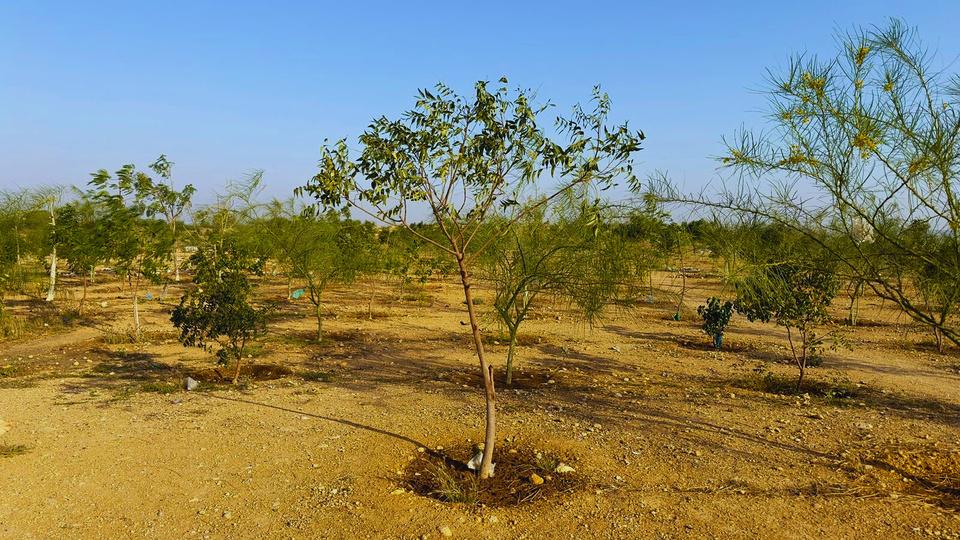
TO IMPROVE LOCAL ENVIRONMENTAL CONDITIONS AND SEQUESTER ATMOSPHERIC CO², DENIM PRIVÉ PLANTED APPROXIMATELY 5,000 TREES OF NATIVE SPECIES ON 11 ACRES IN 2021, AND FOCUSED ON CARING FOR THESE TREES IN 2022 AND IN 2023.
TREE PLANTATION EXPANSION IS PLANNED FOR 2026. CURRENT TREES ARE IN THE GENERATION PHASE.
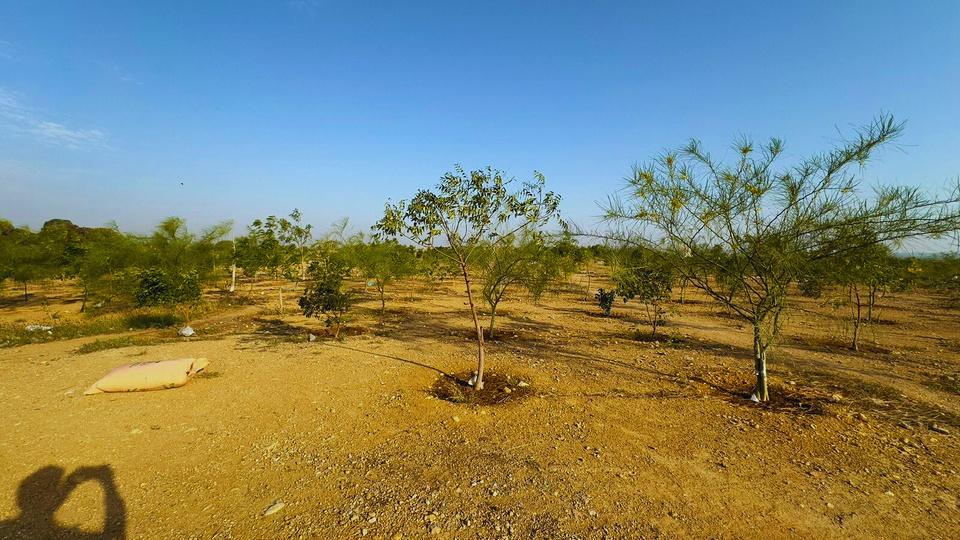

30 % of Denim Privé LEED Platinum facility has open green spaces to preserve and promote the biological environment.
The fashion industry’s material production is known for its high resource consumption and significant environmental impact. Tackling this problem head on means replacing unsustainable materials with sustainable materials. Unsustainable materials are those that take the most energy, produce the most waste, and cannot biodegrade or be recycled, often producing hazardous byproducts for humans, wildlife, and the environment. Increasingly, consumers are demanding products consisting of low-impact materials as the world looks to a more sustainable fashion future.
The biggest roadblocks to sustainable materials is making them cost-effective or scalable alternatives. However, at Denim Privé we strive to create a patchwork of different innovative techniques to reduce our reliance on nonbiodegradable and virgin fibres.
At Denim Privé, we share the values driving the sustainable revolution. We draw from our creativity and our rich history of materials to create ecologically and ethically outstanding products.
From sourcing ethical raw materials, to improving our use of recycled fabrics, to developing new innovative fabrics, Denim Privé produces and incorporates sustainable materials. It’s not how we operate a fraction of our business, it’s how we operate our entire business. Denim Privé’s approach to raw materials and fibres transforms fashion from simply a form of self-expression to a more considered, holistic take.

Our commitment to sustainable materials begins before production. The first step in the supply chain is the procurement of sustainably produced raw materials. More sustainable denim and apparel starts with better cotton. Denim Privé supports responsible cotton production by sourcing minimally impactful cotton, whether virgin or recycled. There are ways to source cotton that are respectful of the farmer, of the land, and of the cotton. For example, regenerative farming focuses on the longevity of the land and so the cotton is more mindfully planted and picked. 5% of the cotton Denim Privé uses is from our own cotton fields. There are more details about the cotton fields in the Supply Chain section

The goal of the industry is to decrease the use of virgin or raw materials overall. One of the biggest ways to do this is to incorporate and grow the use of recycled materials. Generally this is because recycled materials tend to have less associated environmental impacts than using raw materials. This also means closing the loop as less waste is created in a culture of recycling and reusing.
Denim Privé maximises the use of recycled materials as part of our commitment and contribution to a more circular fashion industry. We aim to increase these efforts over time.
In line with our commitment to recycle material, our PCW recycling plant shreds pre and post-consumer waste and re-spins the soft fibres into yarn. This yarn is then used in our denim and then made into a new pair of jeans. Denim Privé used 329,955 metres of recycled cotton in denim production in 2023, this is a 48% increase compared to the 157,745 metres of recycled cotton used in 2022.
In 2023, 32% of our polyester consisted of recycled polyester, which is an increase from previous years’ 6-8%.
6
50
32 % % % % of the materials used in the manufacturing of our cotton-based products in 2023 were recycled materials as compared to 4% in 2022
of recycled materials will be used in our products by 2030
58
of our packaging materials consisted of recycled materials in 2023 (up from 40% in 2021 and 55% in 2022)
of our polyester consisted of recycled materials
Climate change, water scarcity, and various environmental and social risks can disrupt supply chains, the availability of raw materials, and business continuity. At Denim Privé, we understand these risks and implement robust risk management and mitigation strategies to make sure we are creating reliable systems as well as environmentally sustainable systems.
Orienting ourselves around sustainability is our most significant defence against these risks. As certain regions may become water-stressed, we increase sourcing from Better Cotton Initiative (BCI) farmers that implement waterefficient production methods. If raw materials become scarce, we procure and incorporate more recycled materials. Despite regulations, regarding ESG issues, becoming more stringent, we continue to exceed the industry’s baseline environmental performance and engage low-impact suppliers.
Our openness to the adoption of new technologies and innovations means we rely on several different methods of sustainable material sourcing to avoid the risk that comes when some streams become less reliable than others.
Denim Privé identifies and manages environmental and social risks through internal assessments, detailed supplier evaluation questionnaires focused on ESG issues, and consultations with a third-party sustainability advisory.
As a future-minded company, we integrate the consideration of ESG risks into all relevant business decisions.
In addition, we are transparent throughout our supply chain to identify risks and manage a reliable supply of sustainable raw materials. As a result, no significant ESG risks were identified in 2023. For more information on supply chain risk management, See the Supply Chain.

0.61% Semi-Synthetic Fibre
5.64% Synthetic-Based Fibre
0.14% Other Content
93.71% Natural Fibre
In 2023, Denim Privé used 5,828,079 metres of fibre; this includes natural fibres, semi-synthetic fibres, and synthetic based fibres. Plant based fibres included hemp and 3 different types of cotton. The semi-synthetic or manmade fibres we used consisted of Lyocell or Tencel. Synthetic based fibres ranged from polyester, to spandex, to Thermolite and Dyneema. We aim to increase our reliance on sustainable materials, such as semi-synthetic and natural fibres like BCI cotton, hemp, and recycled fibres.
DENIM PRIVÉ AIMS TO BE A CATALYST FOR SUSTAINABLE INNOVATION IN THE AREA OF GARMENT MATERIALS.
Therefore, a two-pronged approach happens: research, design, and create new materials that address environmental concerns and increasingly incorporate them to their maximum efficiency overtime.
Such innovations include:
RegenAgri Cotton
Lycra Adaptiv
Biodegradable 3D printed Denim
Photocatalytic Denim Tex2Tex
Matte Tencel by Tencel
Natural Dyes
Milk Fibre
Bamboo Fibre
Beyond Cotton
Lenzing
For more on our sustainable materials innovation, refer to the Technology and Innovation section.

Water is one of the most critical resources in the world. Denim Privé takes steps to track, decrease, and recycle the water that comes in and out of our facility. Water scarcity is top of mind.
Being a leader means adapting even the most central processes (like washing and dyeing) to preserve the resources of future generations. Denim Privé constantly looks for ways to reduce water use and to recycle the subsequent water waste byproduct of the process. Open to growth, Denim Privé is committed to continually improving water efficiency and decreasing water pollution. This will be done through innovative processes and technologies. The goal is clear: the water Denim Privé takes will be given back in the form of clean, safe water for a better tomorrow.
In 2023, Denim Privé consumed a total of 372,821 m³ of water from municipal sources. Of that, 274,866 m³ were from production processes, 58,049 m³ were from domestic uses, 31,123 m³ were from landscape irrigation, and 8,782 m³ were from construction. The production-based water consumption is from washing, as our advanced dyeing processes are highly water efficient and take place before the garment phase of production.
The total water usage in 2023: 2.36% Construction
73.73% Production Process
8.35% Landscape Irrigation
15.57% Domestic Use
Total water consumption decreased 7.6% from 2022 to 2023.
Explaining this decrease:
While Denim Privé still had some construction going on, it was very minimal, which is partly why there was a drop off in water consumption. Another contributing factor was that the baseline decreased through effective monitoring and traceability of water production, which improved compared to prior years.
The Measurement that means the Most: Water Usage per Piece
In 2023, the total water consumption went down, but so did the amount of water per piece. This is often a truer marker of progress in water consumption because it means the intensity of water usage was more efficient. While the biggest improvement was between 2019 and the years that followed, we continue to improve year in and year out with the aim of reaching the 2025 process water consumption target: 50 Litres per piece.

Denim Privé conserves water by implementing cutting-edge innovative eco-technologies and manufacturing processes. Our BlueVolt dyeing process drastically reduces water consumption while producing vibrant, lasting blue hues. On average, it is estimated that dyeing a single pair of jeans using traditional methods requires between 20 to 50 litres of water. But the BlueVolt takes dyeing out of the garment production process and uses a small amount of water during fabric production.
The BlueVolt system replaces traditional dyeing systems that can be water-intensive with an innovative spray system that can produce a range of indigo shades. This process also substantially reduces the use of salt, further protecting natural freshwater resources.
The majority of process water consumption at our facility is from the washing process. State-of-the-art technology from Jeanologia, Yilmak, Tonello, and Garmon helps us maximise the water efficiency of our washing processes as we perfect the ‘modern vintage’ aesthetic of our jeans.
YILMAK Rainforest saves 25% more water compared to Silver Liner, and Tonello UP utilises cutting-edge water-conserving technology that uses 22% less water than conventional models.

In addition to our waterefficient manufacturing processes, we save additional water through our landscape design that features drip irrigation and drought-tolerant plant species. Further, our LEED Platinum-certified facility conserves water through water-efficient fixtures and technologies that reduce indoor water consumption by 55% compared to baseline.
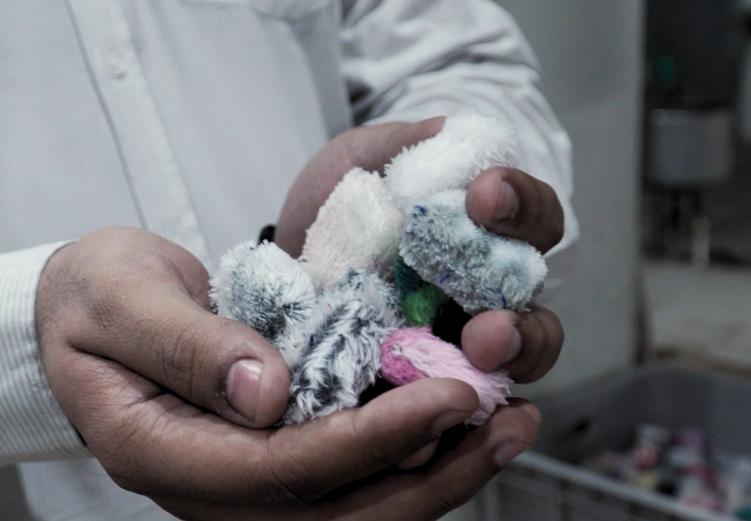
While Eco Grit was introduced into our washing in 2022, Denim Privé continues using this innovation in textile washing. Instead of stones in washing machines, it uses cork granules covered with special fabric. Eco Grit gives a more consistent look to the fabrics than stones do and it can be reused (over 100 times). The sustainability benefits are as follows: machine life is extended, transportation is less intensive, CO² emissions are reduced because of Eco Grit’s reusability, biodegradability, and zero slurry creation.
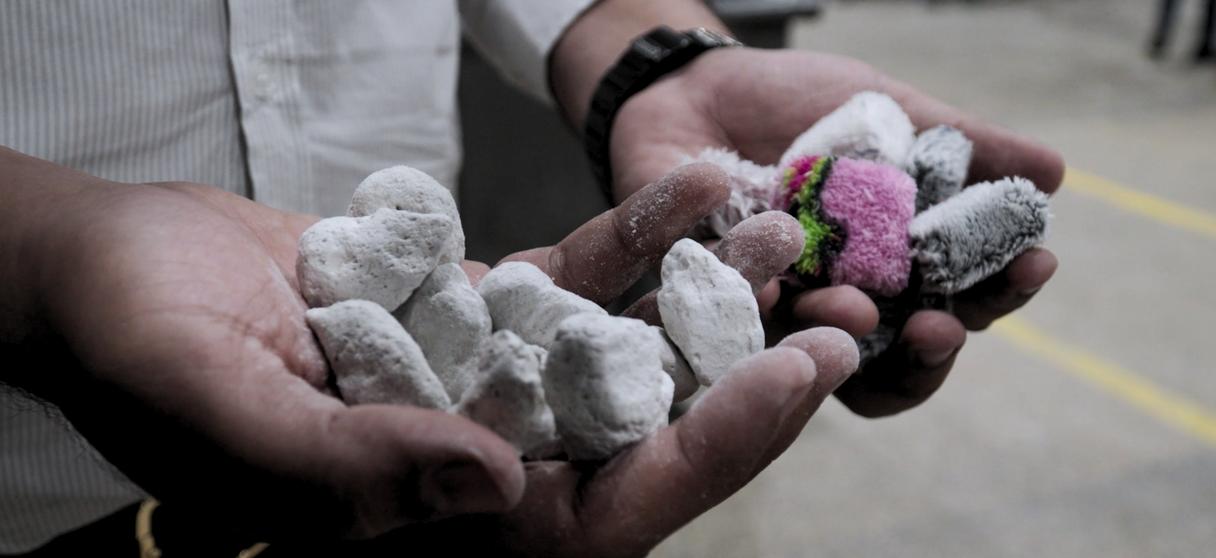
Fashion manufacturing constitutes a significant source of the earth’s water pollution. The goal is to reduce the impact fashion has on water scarcity by optimising water efficiency and, as we talk about in this section, maximising the percentage of treated and returned water to the environment from the water we do use. Located adjacent to the Indus River Delta Nature Reserve, featuring rich fauna, mangrove forests, and ecological communities, it is especially crucial that our effluents are meticulously treated and managed. Currently, industrial discharge from Karachi threatens the Indus River Delta. However, Denim Privé leads by example as to how the local industrial-ecological dynamic can change.
Denim Privé is committed to protecting our local environment and challenging harmful manufacturing methods and the associated industry stigma. Here is the data on how much wastewater we produce, our advanced wastewater management practices that clean it, and the areas we are working on to close the loop on wastewater.
Our wastewater management process begins with our garment manufacturing operations, as our innovative dyeing and finishing processes minimise the amount of chemicals entering our wastewater and the quantity of wastewater produced.
How much water waste is there?
In 2023, Denim Privé discharged 356,282,000 L of treated wastewater. Measuring wastewater improvement means taking a closer look at wastewater efficiency per unit of production and as a percentage of water withdrawn. In 2023, Denim Privé’s wastewater efficiency was 77.408 L per piece, which was about a 14% increase compared to 68 L per piece in 2022, and a 17% increase compared to 2019. The baseline increased because Denim Privé is also treating KT5 water in Denim Privé’s waste water plant. In addition, the percentage of treated wastewater that was successfully discharged relative to the total wastewater produced was 93.7% in 2023, a considerable increase compared to the 2019 baseline of 86.2%.
356,282,000
77.408 L L / piece of treated wastewater was discharged in 2023.
was our wastewater efficiency in 2023, representing a 17% increase compared to 2019.

At the end of Denim Privé’s water cycle, we implement advanced technology to improve the quality of our wastewater. Denim Privé has one of the world's most advanced Effluent Treatment Plants (ETP).
OUR CUTTING-EDGE ETP HAS A CAPACITY OF 75,000 L/HOUR AND TREATS WASTEWATER WITH A 4-PHASE PROCESS:
The biological treatment process utilises mixed aeration technology and soluble organics. By design, the ETP's effluent parameters align with the Zero Discharge of Hazardous Chemicals (ZDHC) Progressive.
We continuously monitor and report the results of wastewater quality analyses to ensure that it exceeds all relevant environmental and industry standards.
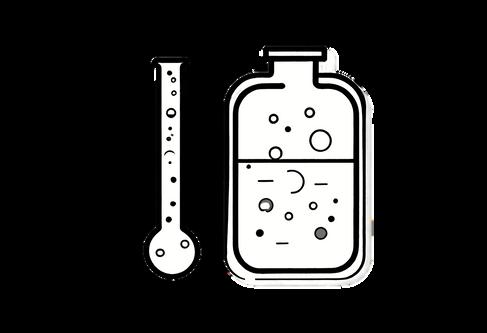
The Sindh Environmental Protection Agency has reviewed and approved the Initial Environmental Evaluation of the installation and operation of our innovative ETP. As part of our engagement with the Sindh EPA, we continuously assess, record, and report our effluent water quality relative to National Environmental Quality Standards (NEQS) and Sindh Environmental Quality Standards (SEQS). The results are reported to the Sindh EPA on a regular basis.
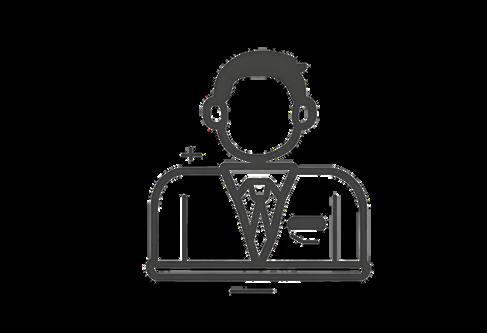
In addition, we have developed and implemented an Environmental Management Plan (EMP) to ensure that the operation of our ETP does not significantly impact local biological resources. An independent monitoring consultant continuously monitors the implementation of the EMP, and the results are reported to the Sindh EPA annually.

Finally, to further improve local environmental conditions and offset impacts, Denim Privé has engaged in extensive tree plantation. This is explored in detail in the climate section.
As a result of these efforts, Denim Privé's wastewater is treated to the maximum extent practicable through advanced technology and above and beyond best practices.
WE ARE COMMITTED TO SAFEGUARDING OUR LOCAL ENVIRONMENT AND EAGER TO RETURN PRECIOUS WATER RESOURCES TO A FLOURISHING LAND.
As part of our commitment to advanced wastewater treatment and environmental protection, we adopt the better output principles of the ZDHC Roadmap to Zero Program and implement the ZDHC Wastewater Guidelines. The ZDHC is a collaborative effort between global brands, chemical su manufacturers, and organisations to re chemical footprint
To ensure that our matches our ambitio party, approved by assessed our wastew according to their assessment results our raw and dischar fulfil aspirational
100% of our wastewater met ZDHC Manufacturing Restricted Substances List (MRSL v2.1) requirements.
E-mail: ahmer.kamran@denimprive.com
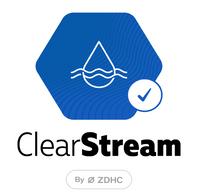



Our Wastewater discharge parameters are validated by ZDHC and local regulatory approved labs, and our discharge parameters were significantly lower than limits.






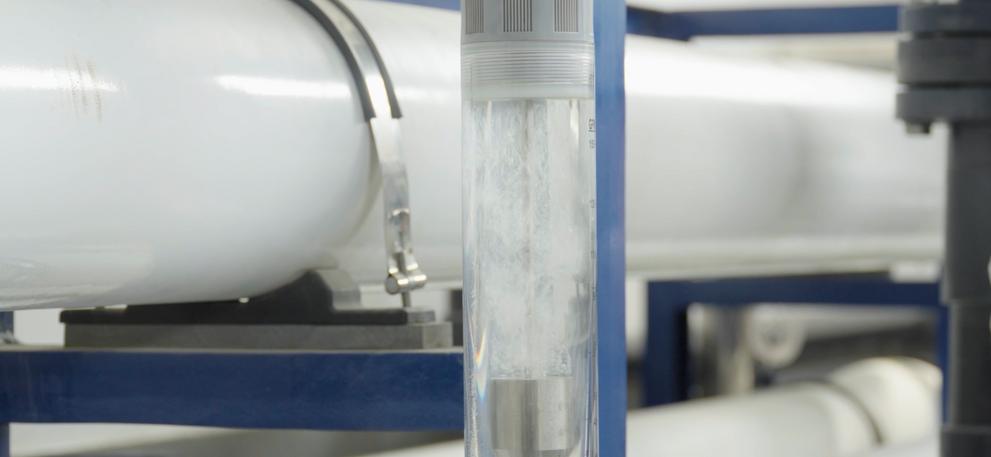
After water has been used as much as it, the water is treated. In 2023, 380,146 m³ of water was treated. The leftover sludge after the water has been treated is a thick mud, which can’t be reused and so a third-party takes it away for incineration. There was 724 kg of sludge in 2023. This was less than in 2022. Denim Privé aims to innovate ways of addressing how sludge can be used and minimised.

We are committed to keeping the environment and people safe from dangerous chemicals. This means responsible management both in what chemicals we use for our garments, but also what happens downstream from the chemicals we use during production. The gold is twofold: to keep our workers and consumers safe, and to keep the environment clean and free from hazardous substances.
Denim Privé bans harmful chemicals from intentional use throughout its processes. We screened and maintained compliance with the Zero Discharge of Hazardous Chemicals (ZDHC) MRSL (Manufacturing Restricted Substance List). Denim Privé implements Restrictred Substance List (RSL) screening throughout fabric production. The ZDHC MRSL doesn’t just restrict chemicals for finished products but also focuses on the protection of consumers, workers, local communities, and the environment.
When selecting and procuring chemical inputs, we seek environmentally preferable alternatives and suppliers with responsible and sustainable operations. In terms of communicating these efforts, Denim Privé participates in the Higg index FEM module to enhance industry-wide chemical transparency efforts. Our compliance with wastewater restricted substances standards and our related Higg Index disclosures have been verified in the wastewater report on the ZDHC portal. We are rated aspirational in MRSL and in the majority of conventional parameters. As a result, our chemical input is traceable and transparently disclosed.
As of the writing of this report, Denim Privé’s dyes and auxiliaries were fully compliant with REACH*, BluSign, GOTS, and ZDHC v2.1 standards. As of 2023, there have been zero reported incidents of noncompliance related to our product labels' health and safety impacts.
*Chemicals and finished products related to REACH Certificate of Compliance were certified or compliant as per customer demand. REACH is a report certifying that the chemicals comply with REACH regulation through comprehensive testing. REACH is a regulation of the European Union designed to improve the protection of human health and the environment from chemicals and their effects.
Denim Privé’s chemical goals:
Identify chemical risks. Mitigate chemical risks. Comply with chemical regulatory standards.

Denim Privé's Chemical Management System keeps operations running smoothly. It includes systematic chemical inventory and documentation, chemical material flow diagrams, regulatory assessments, monitoring, compliance verification, procurement and supplier assessment, and chemical risk assessment. To understand the robust processes of our chemical management system, refer to the illustrated figure on page 93.
We carefully assess suppliers' chemical management policies and give preference to suppliers that participate in programs and certifications such as the ZHDC, GOTS, OEKO, Bluesign, and GreenScreen. As of 2020, Denim Privé requires all its suppliers to be rated level 3 per ZDHC's rating criteria (which is the highest bar they have). In addition, all chemical suppliers must provide updated Material Safety Data Sheets (MSDSs).
Third-party verification is a built-in mode of safety and transparency. Someone without a vested interest in a positive outcome for Denim Privé, but with an interest in safety, comes and assesses Denim Privé’s compliance and advanced chemical management. These third-party verifications are performed by trusted organisations, such as, SGS – Bluesign, ZDHC, OEKOTEX, and ToxFMD Screened Chemistry.
Denim Privé takes meticulous inventory of chemicals purchased and used to ensure compliance with regulations, as well as, other voluntary commitments. The chemical inventory system maximises transparency and traceability. Take a closer look at the chemical inventory on page 93.
Testing final products ensures that they do not contain any harmful chemicals that could impact the health and safety of consumers. An ISO 17025-approved third-party laboratory verifies testing results.
We train our employees to safely manage chemicals from purchasing to handling, to maintain zero discharge of hazardous waste, and to effectively manage risks at each stage. There were 2,235 hours of health and safety meetings completed in 2023. There was training on Chemical Management for a completed 119 hours.
CHEMICAL MANAGEMENT
LEGISLATIVE AND REGULATORY CHANGES
Social Responsibilities
SA 8000 CTPAT SEDEX SMETA BSCI
International Agreements
Rotterdam Convention
Basel Convention
1979 Montreal Convention
Vienna Convention
Stockholm Convention
Kyoto Protocol
International Legislation
ISO 9001, ISO 14001, ISO 18001, REACH, OEKO-TEX, GOTS
Customer Demands
ZDHC MRSL V1.1
RSL by A.A.F.A
OEKO-TEX RECYCLED
ORGANIC
CONVENTIONAL
S.E.P.A 2014
Sindh Environment Protection Agency
End-User Demands
KASSIM Textile Private Limited

Chemicals in 2023: 59 unique products, 51 dyes and auxiliaries and 8 commodities. Denim Privé was 100% ZDHC compliant.
Denim Privé strives to have a clean and transparent chemical inventory. There were 51 chemical products in 2023, not including commodities. All suppliers were used for either production chemicals or non-production chemicals. There were no unknown chemicals.
In 2023, production chemicals were above 94% compliant with Zero Discharge of Hazardous Chemicals (ZDHC) and 100% compliant with Inditex GTW protocol.
Denim Privé received a Screened Chemistry score of 22% in 2023. Its score was not tracked before 2022 due to the scope of the previous version of ZDHC.
Compared to 2022, Denim Privé’s Higg score increased from 84% to 89% in 2023.
Denim Privé was working to achieve Higg chemical level 3, but the Higg has changed and now level 3 will automatically be considered in level 1.

While responsible chemical management is a priority, so is actually reducing the industry’s overall dependence on harmful chemicals. Denim Privé implements innovative processes to reduce the use of chemicals and to incorporate eco-friendly chemicals. This usually means chemicals and dyes that have GOTS certification. Denim Privé has committed to increasing their Screened Chemistry score from 16% to 20% in the year of 2023 and exceeded that goal at 22%.
Denim Privé has been sourcing from top brands, which is helping advance the Screened Chemistry score as the supply chain becomes more sustainable.
At Denim Privé, we don’t just follow industry standards but implement innovative processes.
As a result, we create quality products while reducing our impact on the environment from harmful chemicals.
We will continue to innovate with the collaboration of suppliers and leading industry programs such as Higg and ZDHC to advance chemical management and chemical alternatives throughout the industry.
Denim Privé is fully committed to helping drive an industry-wide transition from wasteful fast fashion to sustainable circular fashion. This means not only eliminating environmental impacts of material consumption and waste, but also being mindful of the unavoidable impact by responsibly taking care of waste. At its best Denim Privé keeps textiles out of landfills and in circulation as long as possible.
At the core of the production process is sustainability. This means the denim and apparel are high quality and built to last, increasing the lifecycle of products and reducing consumption and waste. Quality products and precise manufacturing techniques minimise wasted material and maximise the use of valuable resources. Unincorporated fabric waste is either processed by the PCW recycling plant or sent to be recycled by an EPA-approved third-party contractor.

754,355
43,142 kg kg of pre-consumer waste processed by our PCW plant.
of post-consumer waste processed by our PCW plant.
incorporated into incorporated into 20 & 25% pre-consumer recycled cotton.
10 & 20% post-consumer recycled cotton.
From the beginning of the design stage, our talented designers and technical consultants collaborate to identify opportunities to reduce waste and environmental impacts.
METERS OF RECYCLED COTTON FABRIC IN 2023 USING PRE-CONSUMER WASTE
PRE-CONSUMER
METERS OF RECYCLED COTTON FABRIC IN 2023 USING POST-CONSUMER WASTE
POST-CONSUMER
138,558m of
318,671m of 10%
From the onset, our creatives design products with recyclability and biodegradability in mind. From CAD to cuts, we leverage cutting-edge technology, such as revolutionary Gerber Garment Technology, automatic spreaders, optimisation software, and precision-cutting technology. These all reduce waste through precision and efficiency. Extending a product’s life can dramatically improve consumption and waste patterns. To facilitate extending a product’s life, Denim Privé focuses on lasting quality and colours and joins forces periodically with experts in repair and composting design and workshops. In 2023, Denim Privé collaborated with Sashiko denim, repair craftsmen trained in the art of sashiko and based in Amsterdam, to develop a denim repair kit and workshop.
In 2023, Denim Privé produced 1,035,129 kg of non-hazardous waste, which translates to 0.2249 kg per piece.
Non-hazardous waste consisted of:




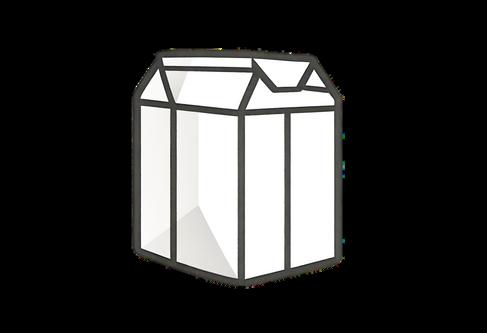
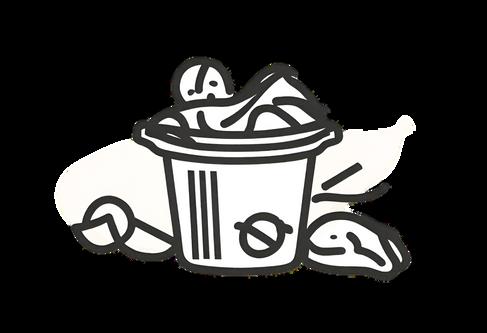


99.8% non-hazardous landfill diversion rate
All non-hazardous waste was recycled besides food waste, resulting in a nonhazardous landfill diversion rate of 99.8%. In addition to non-hazardous waste, Denim Privé produced 1,029,088 kg of hazardous waste, which translates to 0.2236 kg per piece.
All hazardous waste was disposed of by an EPA-approved third party who incinerates/disposes of the waste in an environmentally responsible manner.

Denim Privé aspires to be more than a company that simply follows the sustainability guidelines set before them, but rather a company that is at the forefront of setting those standards. Our robust, responsible, and transparent supply chain helps us build-in sustainable practices and, importantly, adaptable systems for a future that is constantly changing with the discovery of new climate information. A commitment to facilitating a sustainable supply chain means everything from supporting regenerative cotton production to sourcing from responsible suppliers who share our values.
Even though Denim Privé is only directly in charge of the garment production step (spinning and fabric are the two processes that take place before Denim Privé comes in), we coordinate and cooperate with our partners along the supply chain to uphold consistent sustainability standards.
We drive demand for sustainable raw materials such as BCI-certified cotton and recycled polyester. We work with suppliers to help raise industry standards by normalising sustainable business practices. Through our participation in the Higg Index and other industry programs, we enhance the transparency of our operations and encourage our supply chain partners to join this industry-wide effort.
We carefully evaluate each prospective supplier against ESG criteria and give preference to suppliers with favourable ESG performance and certifications. We have recently enhanced our focus on supplier sustainability and ESG risk through additional items related to third-party certifications, Higg Index participation, and environmental and social audits of our supplier evaluation process.
Our supply chain consists predominantly of cotton farmers, fabric suppliers, chemical suppliers, garment accessory suppliers, and manufacturing equipment suppliers.
Our unique denim and apparel begin with the procurement of raw materials. We procure from farmers that cultivate high-quality, longstaple cotton through techniques that preserve natural resources and support the people involved.
At the core of our denim philosophy are sustainable cotton production and ecological agriculture.
In 2023, 86% of the cotton we procured came from BCI farmers. Our target is to increase that share to 100% by 2030.
The BCI is a global non-profit and the largest cotton sustainability program in the world, making cotton farming more beneficial to farmers and the environment. The Better Cotton Standard System covers all three pillars of sustainability (environmental, social, and economic), as supported by BCI Principles and Criteria and monitoring mechanisms that validate results and impact.
Our sustainable supply chain policies help build resilience and safeguard business continuity in an unpredictable and perpetually evolving fashion industry.
Supply chain risks can come in many forms in today’s dynamic and unpredictable fashion business landscape. For example, climate change and water scarcity can impact cotton supply and production, increased transparency and public scrutiny can uncover social controversies such as poor labour conditions, and supplier-related compliance issues can impact downstream production. At Denim Privé, we protect ourselves from these risks by sourcing from farms that conserve water and natural resources and suppliers that share our vision of responsibility and sustainable business. Further, we promote supply chain transparency and rigorously assess our suppliers to identify and mitigate risks.
To help streamline industry-wide transparency, we participate and encourage our suppliers to participate in the SAC Higg Index. We evaluate suppliers on factors including but not limited to compliance with wastewater discharge permits and environmental regulations, business ethics and policy, participation in industry ESG programs such as the Higg Index, ESG-related certifications, and third-party audits for labour practices and ESG performance. We specifically give preference to suppliers that have achieved ESG-related certifications such as Sedex, ZDHC, GOTS, OEKO TEX, Blusign, BCI, BSCI, ECO Passport, WRAP, CTPAT, ISO, Organic, SLCP and GreenScreen.
For our chemical suppliers, we implement additional criteria to mitigate further supply chain risks. Denim Privé requires all our suppliers and distributors to have the in-house capacity to understand and uphold ZDHC requirements. All suppliers must provide Safety Data Sheets (SDSs). Our technical department ensures that all dye and chemical suppliers and their formulations comply with the RSL/MRSL. Denim Privé documents and implements detailed processes to monitor suppliers’ compliance with our chemical purchasing policy, RSL, and MRSL. Suppliers who fail to meet these standards are removed from the approved supplier list. In addition, our customised chemical management system identifies and prioritises greener and safer chemicals.
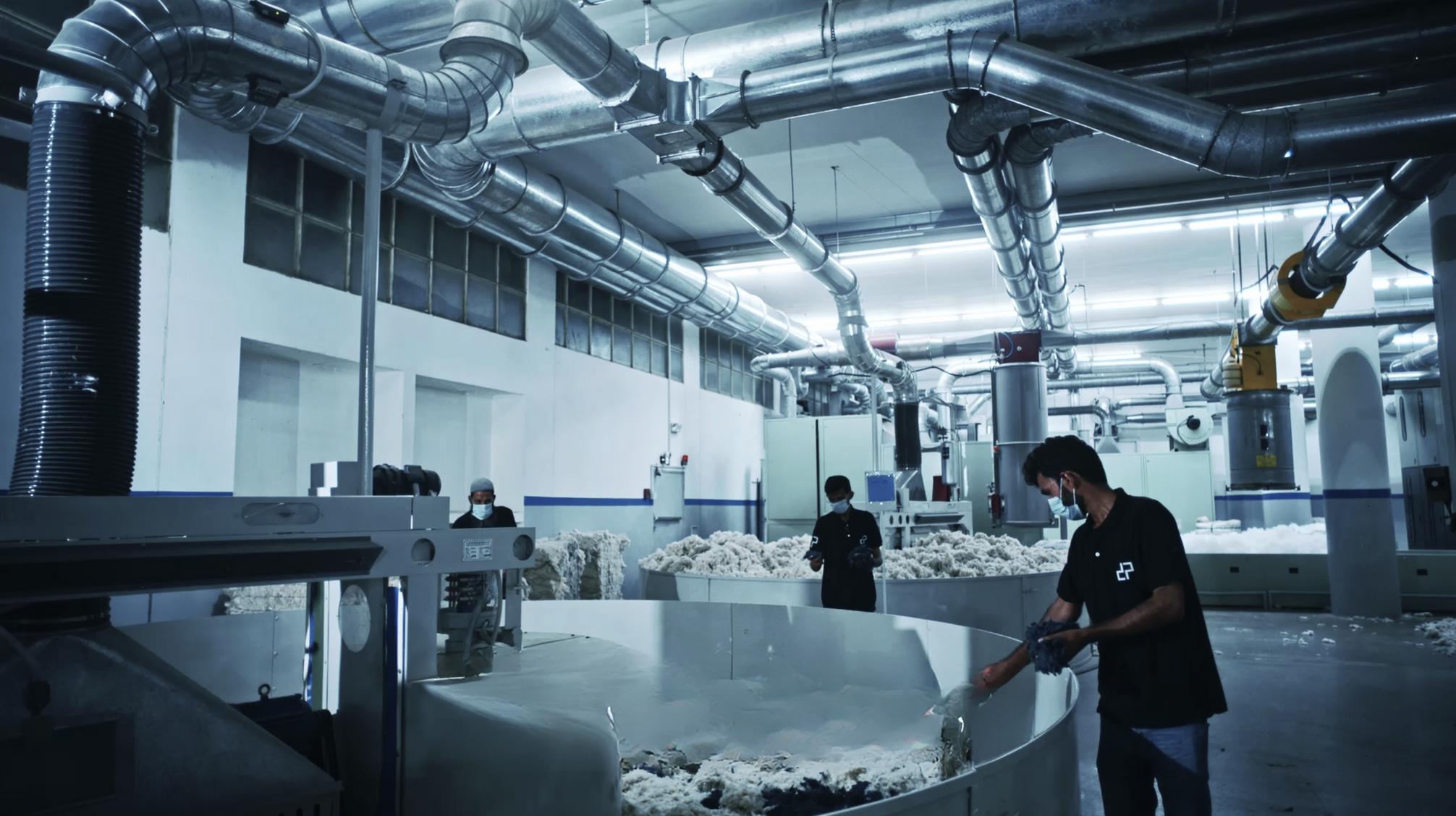
While there are many tools to ensure a sustainable supply chain, there are elements that are often beyond the control of any single company along the supply chain. For example, scope 3 emissions involve taking into account the full supply chain and environmental impacts along the way outside of a direct company. However, there are many dependent factors making it difficult to collect data.
Denim Privé mitigates some of this typical problem by being part of a vertically integrated system with Kassim Denim. This means that, though not exclusively, Denim Privé steps in after Kassim Denim has spun cotton into fabric to then make the garments. Sister companies bring assurance in the sustainability standards that are being upheld.
Denim Privé goes beyond regulatory compliance and seeks to collaborate with suppliers who do the same. We continuously research and incorporate greener alternatives, safer chemicals, and industry-changing innovations and processes. Furthermore, we facilitate conversations with suppliers and other industry stakeholders about how we can collectively raise standards and drive the industry and its supply chains toward a more sustainable future.
As of 2023:
100
of our fabric suppliers are SEDEX compliant. Trims are not required to have met the supplier 4 pillar but some have met the 2 pillar.
100
100
100 % % % %
of raw materials (fabrics, trims, and chemicals) have been tested for harmful substances per the OEKO-TEX Standard or equivalent.
have completed the SAC Higg Facility Environmental Module (Higg FEM) or FSLM self-assessment.
of our suppliers are self certified or have been audited to a labour code of conduct and certified by a third party.
The latest supplier evaluation had a 100% response rate, and there were zero instances of non-compliance with their respective wastewater discharge permits. In addition, there were no instances of non-conformance during any labour code of conduct audits, and 100% of our suppliers have been audited to a labour code of conduct and certified by a third party. Based on the results of our supplier evaluation, no significant risks or non-compliances regarding labour codes of conduct, child labour, compulsory labour, or OHS violations were identified in our supply chain.
Below is a list of all our major suppliers, as well as the certifications they hold on the next page.



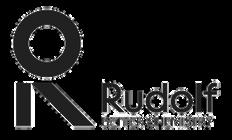



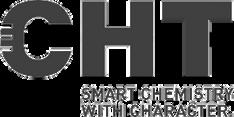




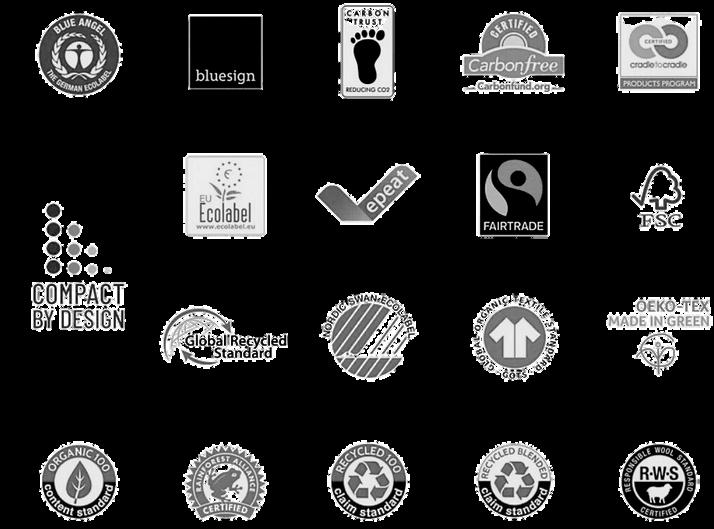


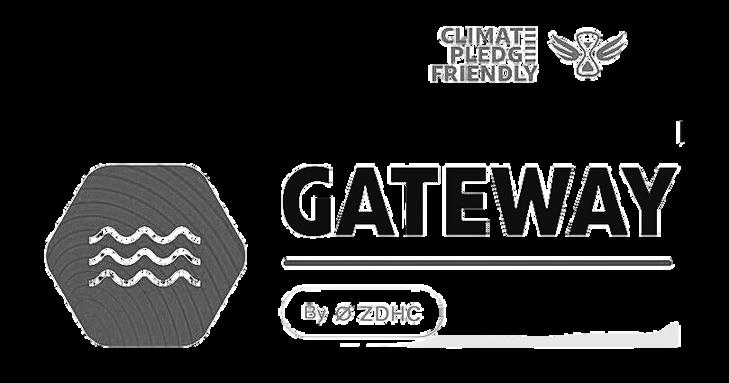




Every step of the way, our garments interact with people. Farmers grow the raw materials, workers cut, sew, stitch, and maintain machinery. People contribute all along the supply chain. Our community extends beyond to the consumers and the community where we operate in Pakistan.
The quality of our products and the success of our organisation depends on the quality of life of our people. We are committed to developing an exceptional workforce that exhibits talent, productivity, and care for one another.
In return for the good work done by our employees, we provide an inclusive, supportive, and safe work environment and an organisational culture of high morale, employee development, collaboration, and respect.
We aim to engage and inspire our employees and ensure that team members feel included and passionate about their contributions to our collective accomplishments. We believe this philosophy fosters both productivity and creativity at Denim Privé.
We also continually invest in our employees' well-being and skills and the recruitment and retention of top talent in the industry. Our exceptional team consists of creative artisans who meticulously consider each step of the process and identify small changes that make big differences.
employees employed by Denim Privé as of December 2023.
new team members were hired over the course of 2023.
100 1-4 % % of our employees are located in Pakistan, with the exception of a few sales agents and designers.
was our turnover rate range every month in 2023.

100 % of our employees are covered by our OHS Committee.
2,235 hrs of training specific to OHS issues, such as best practices in chemical handling, fire drills, and incident prevention, were provided in 2023.
In 2023, there was one major OHS i less than 2022). 14 absentee days were four minor incidents. The ove There were zero fatalities and no any applicable OHS regulations in safety management can be found in
*Calculated as (major injuries / h


Another element of proper worker treatment is overtime hours. The percentage of overtime hours in 2023 was 12.30%. Workers receive double their rate for overtime.
Denim Privé follows the overtime provision defined in subsection 68(1)(A), and OHS as per Chapter of the Sindh Factories Act (sub section 15 to 53).

Denim Privé is committed to providing an inclusive work environment where we embrace diversity and ensure equity in our business practices. We provide compensation and opportunities based on merit and skills. Furthermore, we uphold a zero-tolerance policy for discrimination of all kinds. To promote awareness and responsibility, we trained 510 employees this year on anti-harassment, antiabuse, and anti-discrimination. As a result, in 2023, there were zero incidents of discrimination, human rights violations, corruption, bribery, or business ethics.
Denim Privé champions gender equality and provides ample and equal opportunity for all workers, such as equal pay between women and men in similar roles. As of 2021, female managers/supervisors' compensation was 90% of what their male counterparts earned (due to less experience), and female labourers earned 100% compared to their male counterparts. Employees at Denim Privé are promoted for good performance. Unique opportunities are available for female employees to grow and contribute to the organisation.
Denim Privé fully supports our employees' right to collective bargaining. There are currently three labour unions representing a total of 120 Kassim employees.
As of December 2023, Denim Privé had 1,142 female employees and 2,543 male employees for a total of 3,685 employees.
109 female employees were added to the team in 2023.
27
34 % % of total new hires were female in 2023. of total turnovers were female in 2023.
69% Men
31% Women
Furthermore, we provide opportunities to develop our workers in areas they seek to grow in. Refer to Employee Training and Development below to learn more about these opportunities.
Our employees are leaders, innovators, and change-makers. They are driven by intentional work and meaningful impact. We aim to cultivate these qualities through a culture of open communication, wherein each team member feels comfortable and confident sharing their ideas and opinions. In addition, we invest in training our staff so that they are equipped with the knowledge and skills to take on future challenges.
1,210 employees participated in our in-house skills training in 2023.
In-house skills training covered quality control, supervisory skills, and team building.

participants in the Lifelong Learning Initiative

5
30 days per week minute classes
90
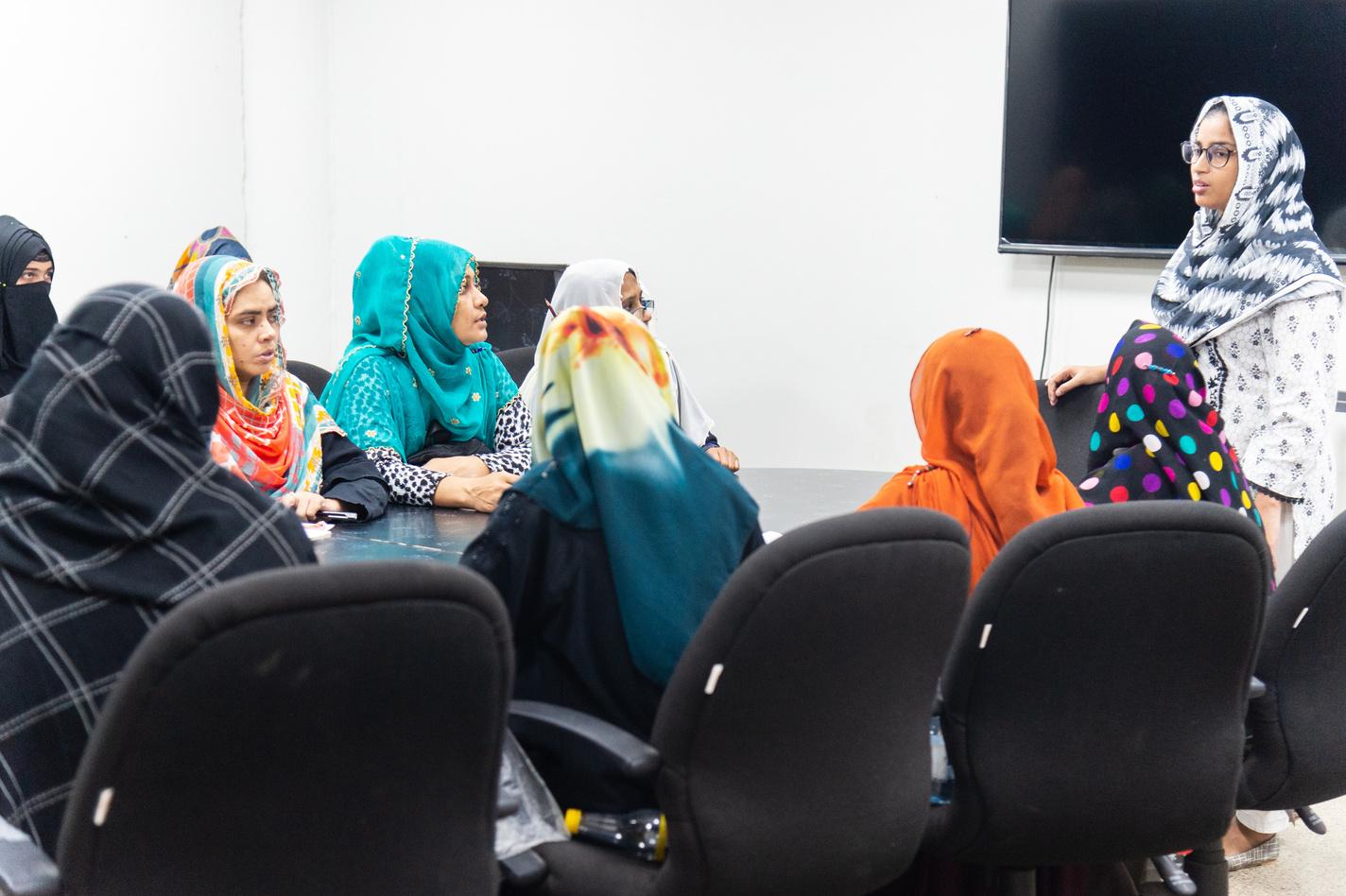
Our Lifelong Learning Initiative is a program specifically designed for our female garment workers who have not had the opportunity to pursue education.
The program teaches fundamental skills that will help them advance in their careers and personal lives, specifically focusing on literacy, mathematics, and language (English and Urdu).
Lifelong Learning kicked off in 2021 with 20 participants, and continued on with increased engagement in 2022 and 2023 with an average of 30 participants. The classes happen year-round, 5 days a week for 90-minutes.
We have several goals as we look to the future of our community.
ONE THREE TWO FOUR
Equity and competitiveness in total rewards.
Improve worker health, satisfaction, and engagement.
Provide resources and respond to the needs of the community.
Incorporate sustainability targets into worker performance.
There are plans to include sustainability targets and commitments on the employee level with incentives for incorporating their achievements into their performance reviews. Improving sustainable performance can mean financial bonuses and other benefits.
18,492
0.87 hrs hrs that our employees received in skills training, OHS training, business ethics, and human rights training in 2023. per employee average for 2023.
We treat all employees like family—our designers in London to our facility workers in Karachi. Denim Privé provides funding for free medical clinics and schools throughout the city of Karachi for our employees, their families, and residents. We sponsor education through high school, and the most gifted students complete university through our education program. To view a full list of the programs we support, refer to the Collaboration section below.
To promote the overall well-being of our people, we provide benefits such as free transport, social security, and pension payments, subsidised food at our cafeteria to full-time permanent Denim Privé employees. In addition, employees are supported with health benefits such as free Covid vaccinations.
All Denim Privé employees have access to our in-house Health Centre, where experienced doctors and paramedical staff are available to treat our employees.
To help support our employees after retirement, Denim Privé enrols our employees at the Employee Old Age Benefit Institution (EOBI) and contributes every month. In addition, we enrol our employees at the Sindh Employees' Social Security Institution (SESSI) and contribute monthly to support the labour class with benefits such as medical care facilities and cash benefits for workers and their dependants.

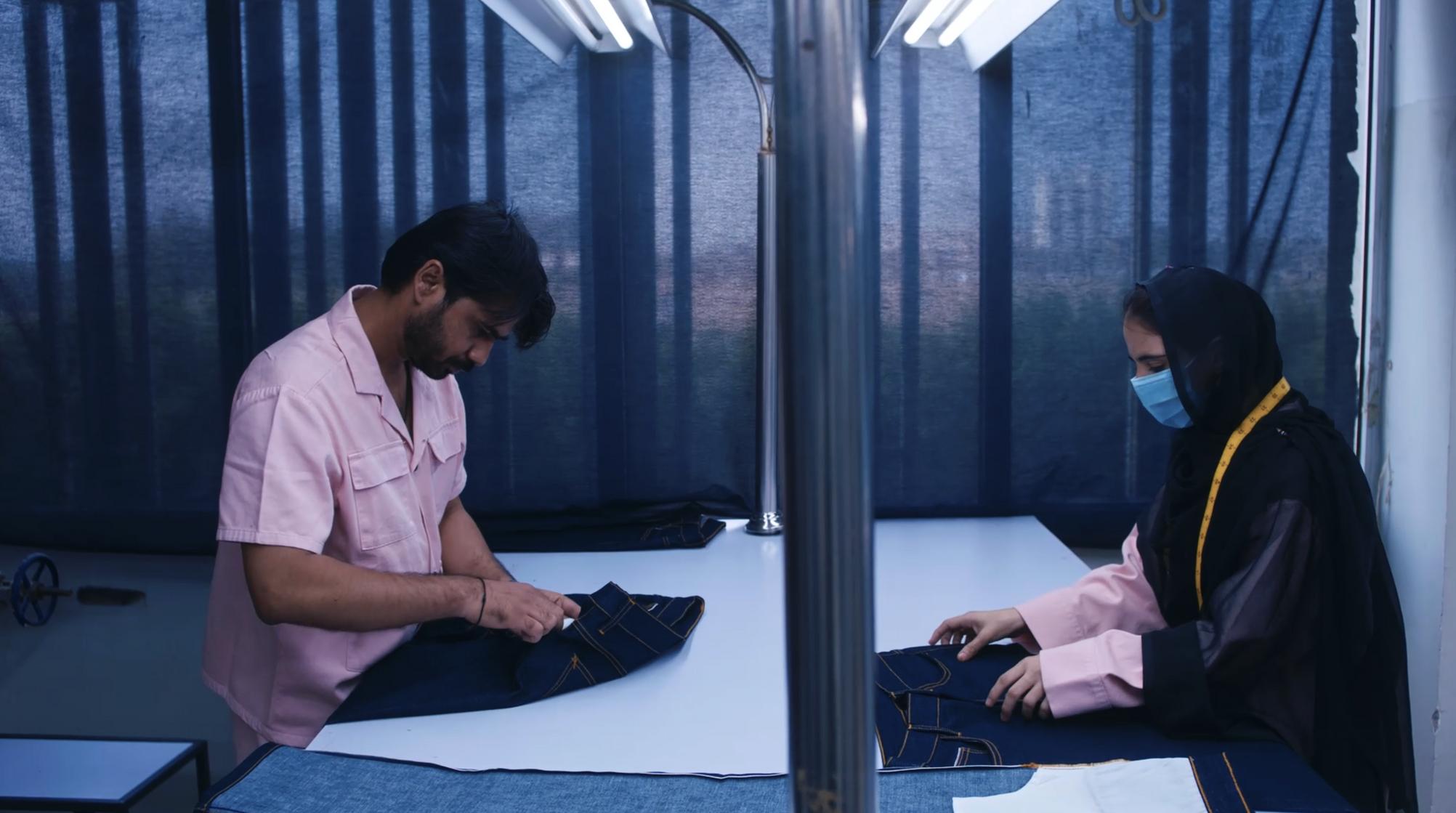
Here at Denim Privé, we understand that great progress is never achieved alone. To move the entire fashion industry towards a sustainable future, we collaborate with other denim and technology organisations at the forefront of sustainability— stakeholders, industry peers, academic institutions, progressive organisations, and denim enthusiasts. Internally, Denim Privé fosters an inclusive and collaborative culture. We believe in the free exchange of ideas that spurs innovation and optimises our collective efforts. This common drive elevates the status quo, fosters cutting-edge innovation, and clarifies the vision of a sustainable fashion industry for all of us.
Denim Privé has several strategic partnerships focused on raising ESG standards in the fashion industry. Below is a list of our strategic partners and a brief description of our collaborative efforts. More information on the innovations mentioned below can be found in Technology and Innovation.




CleanKore takes traditional denim production setup and machinery and adapts it to be more sustainable, cutting out dangerous chemical use and inefficiencies, saving resources and money. They do this through patented technology that changes how yarns are dyed at the denim mill, which keeps the core white. Denim Privé has run fabric in bulk using the CleanKore process.
In collaboration with Archroma, Denim Privé has introduced a range of vegetable dyes in the place of synthetic dyes. Natural dyes offer smooth colours that are more appealing to the naked eye and do not harm the environment in any way.
Presented a denim repair workshop in conjunction with Sashiko Denim, masters in the art of a traditional Japanese mending technique that uses hand-stitching. at Kingpins in October of 2023.
Reinventing the fading process in collaboration with Soko as ozone technology and other sustainable methods remove the need for pumice stones while achieving the same authentic look.
We collaborated with DeriDesen to design different trims using their sustainable materials. These materials included, olive seed, natural cork, recycled denim fabric, recycled denim paper, and bionic denim fabric. They are all USDA, FSC or OEKO-TEX certified.


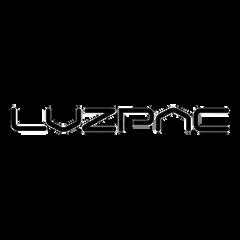
The collaboration with Rudolf spans several different finishing techniques that focused on temperature regulation, water repellent technology, and breathability.
The University of Bologna is our research partner, and together we developed innovative fashion products such as Photocatalytic Denim, jeans that help clean the air.
We have collaborated with the Berlin-based fashion house LUZPAC to develop DarkLyte, jeans that charge your mobile phone with solar power.

Committed to utilising the most eco-advanced denim dyeing techniques, we partnered with Sedo to introduce the world’s most sustainable indigo.



Paris Fashion School
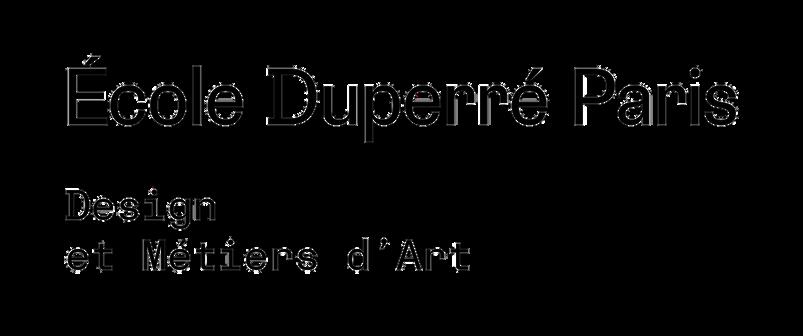
We implemented Blue Snow technology from Garmon, which is discussed in greater detail in the Technology section.
Jointly developed by Kassim x Meryl, is the creation of innovative jeans from yarn that reduces water usage, chemical additives, and energy. The jeans are 30% lighter, more breathable, and provide moisture management.
Together with Bainisha, we developed the world’s first Connected Denim.
Conducted engagements such as the Blue Hands Workshop, wherein Denim Privé’s chemist revealed ancient techniques for dyeing fabrics with natural indigo.
Denim Privé is committed to building a solid bridge between its role as a denim producer and the surrounding communities.
Projects between academia and the denim industry:

Denim Privé leads industrial visits for students. It’s an educational opportunity for students to get a clear picture of the practical challenges organisations face in the business world through an immersive experience.
Denim Privé promotes a learning culture amongst its employees as well. We encourage our employees to enhance their professional skills through certifications and degrees via our educational sponsors, the Aptech Institute and the Pakistan Institute of Management.
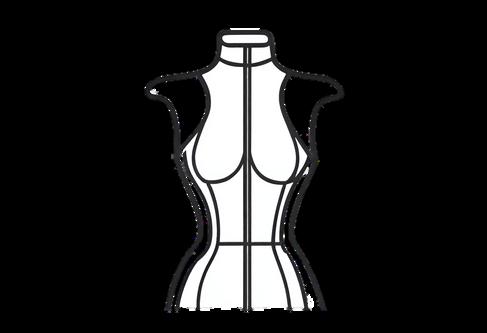
Denim Privé and its sister mill, Kassim Denim, sponsored denim courses for the next generation of designers in 2023. Denim Privé provided students with fabric and resources in collaboration with Kingston University London Masters Denim Project and Central Saint Martins 2nd Year BA Honors Denim Industry Project.
Prioritising the health of the community:
In 2020, Denim Privé collaborated with The Indus Hospital and conducted a blood donation drive to help support our community medical centres. A blood donation drive was conducted in 2023, as well.
Provided in-house vaccinations for employees against COVID-19 during the pandemic in 2021. 100% of employees received COVID-19 vaccinations. We took other health precautions on Denim Privé campus as well.
Denim Privé supports 44 ZMT Clinics for providing medical care to local communities.
Denim Privé encourages our suppliers and partners to participate in external ESG initiatives such as collaborative industry initiatives/coalitions, third-party sustainability certifications, and charitable foundations and trusts.
A list of all external initiatives can be found below.
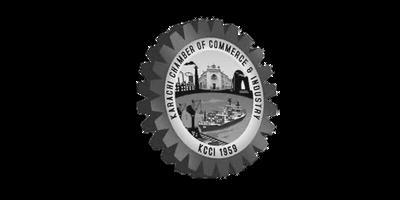

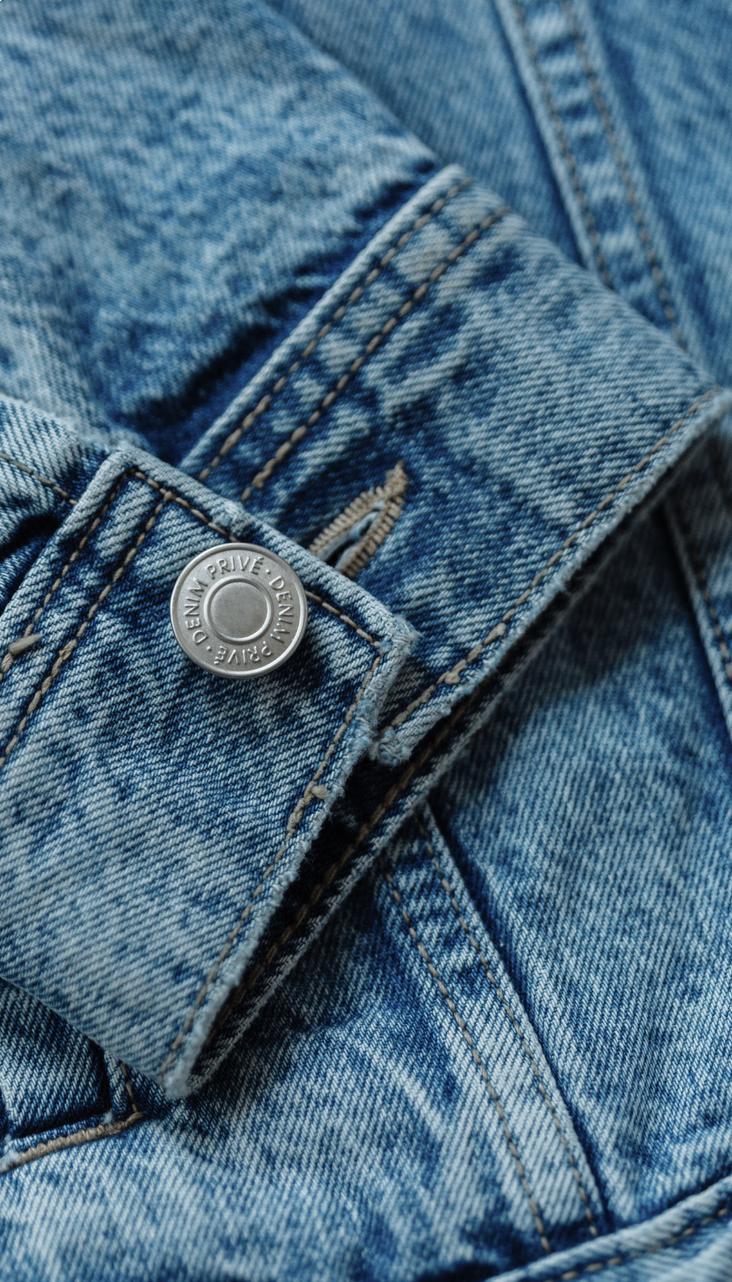



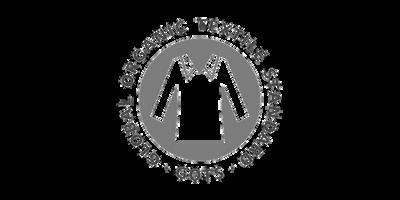


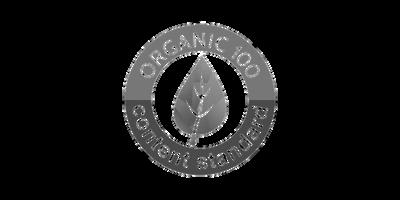
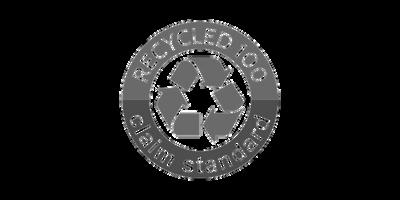

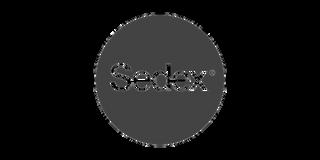







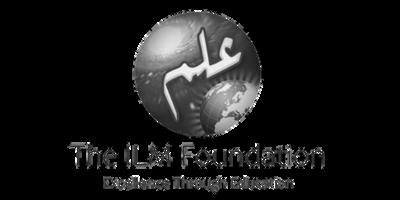
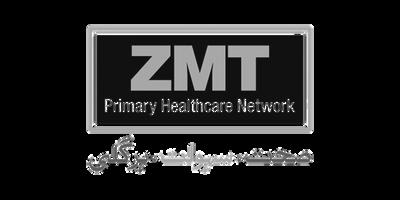


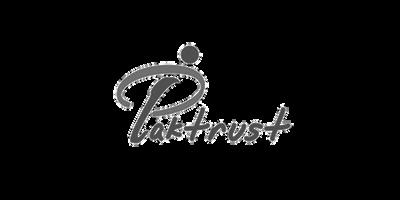
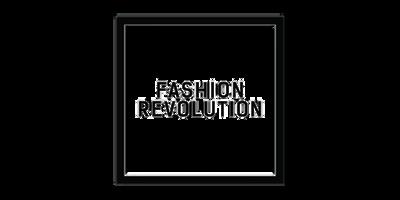
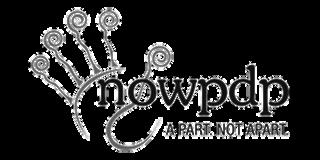



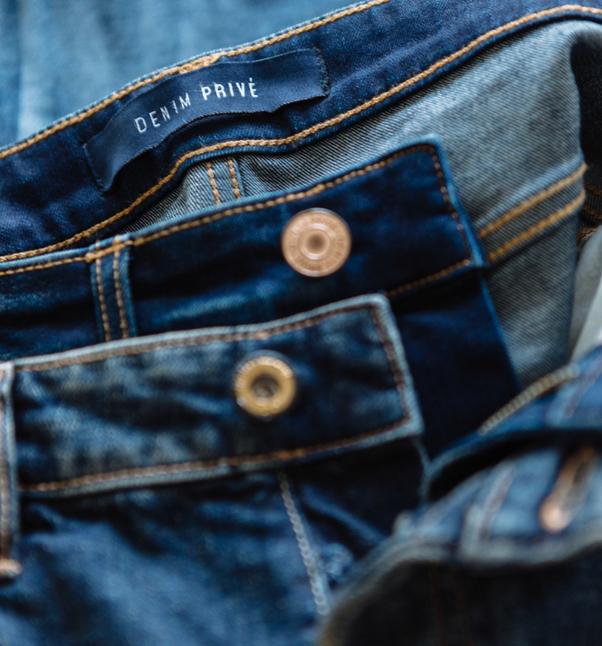

Our suppliers and customers are strategic partners. We work together to better meet our stakeholders' requirements and co-create innovative new products and solutions to benefit the environment and society.
By working directly with our customers, we better understand their expectations and effectively co-create unique fashion products. Our customers are our key collaborators as we develop win-win solutions that align our objectives, long-term success, and impacts. This last year alone Denim Privé’s collaborations doubled with the addition of: SOKO, Rudolf, Derridesen, Sashiko Denim, Clean Kore, and Archroma.
Denim Privé is committed to increasing our involvement in collaborative industry initiatives. By 2025, Denim Privé intends to join the SAC as a Corporate Member, joining other leaders in sustainable fashion to advance the Higg Index. This full-circle collaboration focuses on tool adoption, transparency, and knowledge sharing to improve ESG performance and benefit all industry stakeholders. In addition, Denim Privé intends to become a contributor to the ZDHC by 2025. ZDHC Contributors are brands, associates, and value chain associates that are collectively the driving force behind the ZDHC Programme and Roadmap to Zero initiative.
Sustainability is going to take more than doing what’s been done. Inherent to the Denim Privé process is occupying this experimental space. From where we sit, we don’t think a sustainable future is possible without the constant implementation of innovative practices and technologies. We continuously create innovative fashion products that push the limits of possibility to create real, positive impacts. We dream big and then we make it happen. This means being at the forefront of cutting-edge technology and innovation. In addition to our own innovations, we continuously research and implement emerging technologies that enhance efficiency and reduce impacts. Getting it right means relying on the resources of the entire fashion industry. Technology and innovation are at the heart of not only our approach to sustainability but who we are as a brand.
A culture of collaboration and innovation is engrained in our company DNA. Denim Privé was designed as a business to advance the relationship between fashion, technology, the environment, and society. Black Box is our dedicated research and development team of creative thinkers, technology experts, and meticulous researchers. The Black Box team has a dual focus on preserving traditional aspects, related to quality and function, while adopting creative solutions that the fashion industry has never seen before. Together, this balance results in the most advanced and flawless fashion products that are both technologically and environmentally advanced while maintaining lasting quality fabric and colour. We refer to these dual qualities as “Modern Vintage.”
The Black Box team identifies opportunities to eliminate waste and environmental impact. At the beginning of the design process, they focus on recyclability and biodegradability. Products are geared towards the future and impact issues, such as water and resource scarcity, are considered at every decision point.
In addition, our technology team is a source of collaboration and engagement with internal team members and client relationships, as we share ideas, adopt emerging technologies, and create new synergies together that reduce costs and impacts.
In 2023, one new person joined the black box team at Denim Privé.


The Blue Volt process creates shades of indigo with an innovative spray system that substantially reduces salt and water consumption. The process also incorporates our patented eco-friendly indigo dye, Endigo, which was developed in partnership with Sedo. This takes place during the fabric manufacturing stage before reaching Denim Privé’s garment manufacturing.
Developed with research partner, the University of Bologna, photocatalytic denim uses nanocomposite technology and sunlight to help eliminate pollutants from the air. This is applied during the garment manufacturing stage.


This is a finish or a surface dyeing application that effectively is a colour changing finish application. The molecules of the micro-pigments encapsulated in the coating change the path of light, the garment gradually turns to a lighter colour as the temperature rises and becomes darker again as it drops. The molecules of these pigments modify the path of light and change colour according to the temperature.
Garments are sanitised to ensure maximum level of comfort. In colder countries, the product can give a reactive plain more wintery look and a washed out look in summer time, which prolongs the useability of the garment.

Denim Privé utilised 3D-printing technology to create 3D-printed denim with flexible and biodegradable materials.
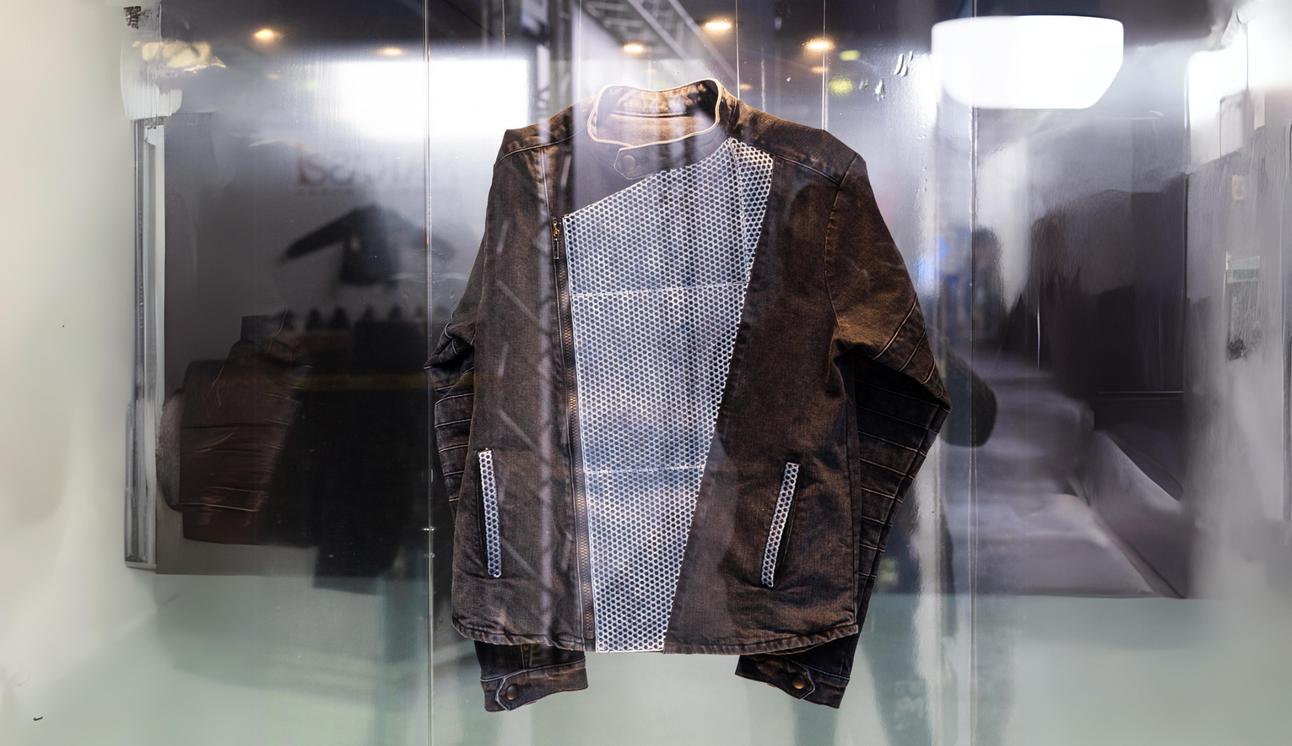

Developed in collaboration with Luzpac, DarkLyte is denim equipped with solar technology that charges your phone or devices on the go.
Developed in partnership with Bainisha, The world’s first connected denim is equipped with sensors that track movement, position, body temperature, and humidity.
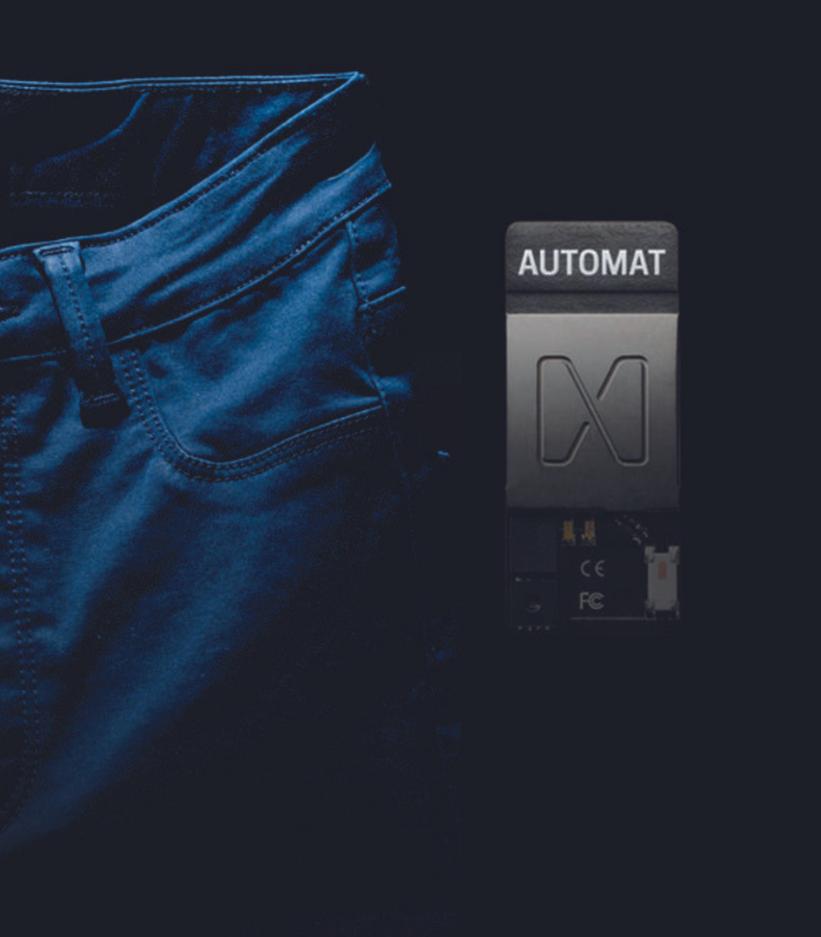
Lycra Adaptiv is about an easy and soft stretch with mid-level compression. It’s not for sculpting but for shaping.
The introduction of LYCRA® ADAPTIV fibre is a game-changer for the apparel industry. This innovative technology allows garments to adapt to different lifestyles, movements, and body types. It achieves this through a unique polymer chemistry that adjusts to the wearer's needs. When at rest, it offers a comfortable, supportive fit. When in motion, it adapts its elasticity, enhancing comfort and ensuring the garment stays in place. Lycra and Kassim Denim are supportive partners in their respective sustainability goals.

OZ3 is a form of bleaching with ozone gas as opposed to the traditional hypochlorite bleaching. The result is the same look as traditional denim but without the use of hypochlorite or water in the process.


As part of a climate care initiative, Denim Privé created the 100% sustainable garment. The biodegradable garment features 100% cotton ecru fabric and thread with sustainable trims, such as removable main and fly buttons, self-fabric labels and patches. There is no dyeing process.

Hemp is one of many natural fibre alternatives to cotton that DP uses in garments. Decreasing dependence on a single natural fibre will increase the ability to respond to production without harming the environment.
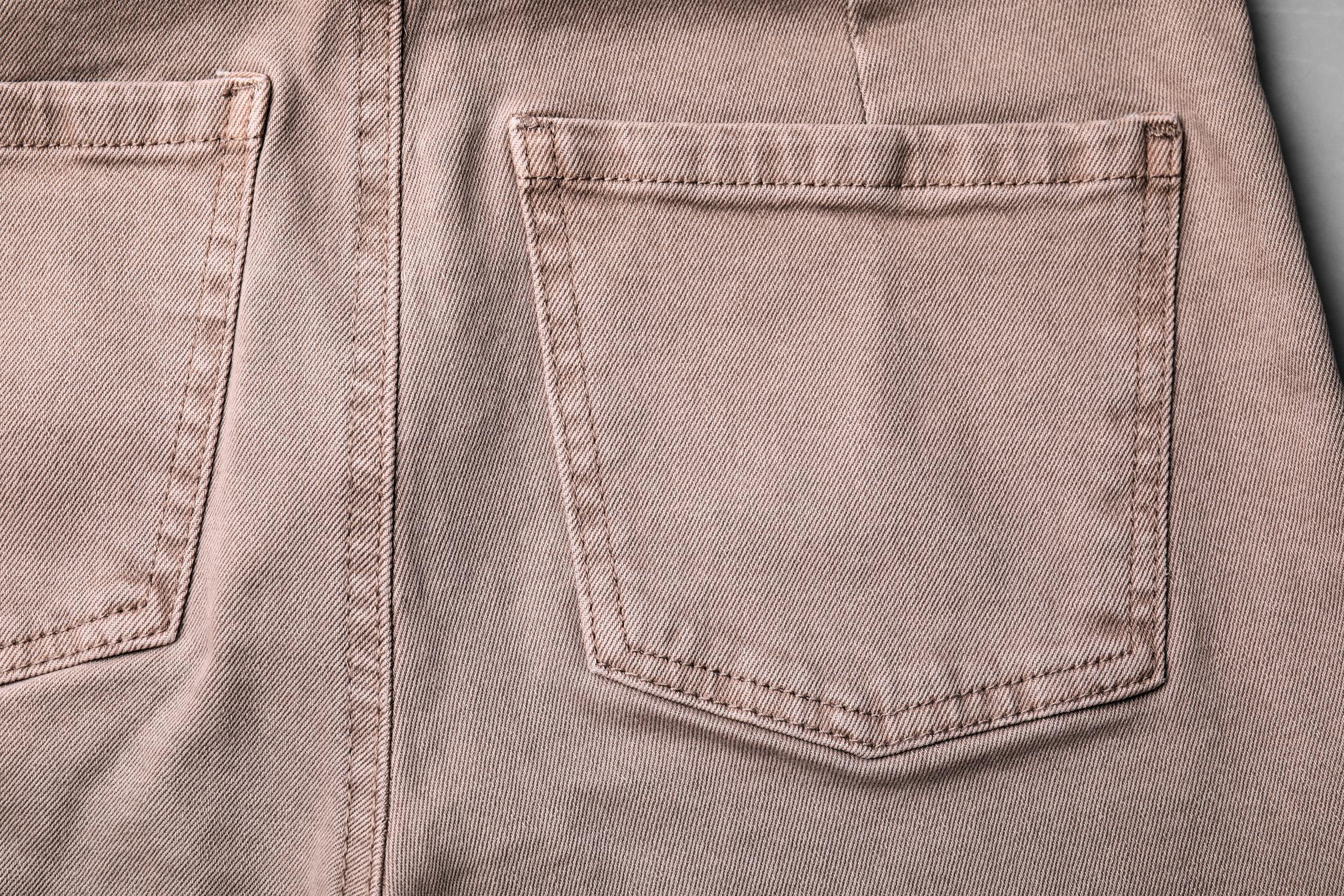
Implementing sustainability at each step of the process from cotton to finished garment includes careful consideration of dyes. In collaboration with Archroma, Denim Privé has introduced vegetable dyes in the place of synthetic dyes. Some of the sources for these dyes are bitter orange residues from the herbal industry, almond shells from the food industry, beet residues from the food industry, and cotton plant residues from the cotton industry. Natural dyes offer smooth colours that are more appealing to the naked eye and do not harm the environment in any way.
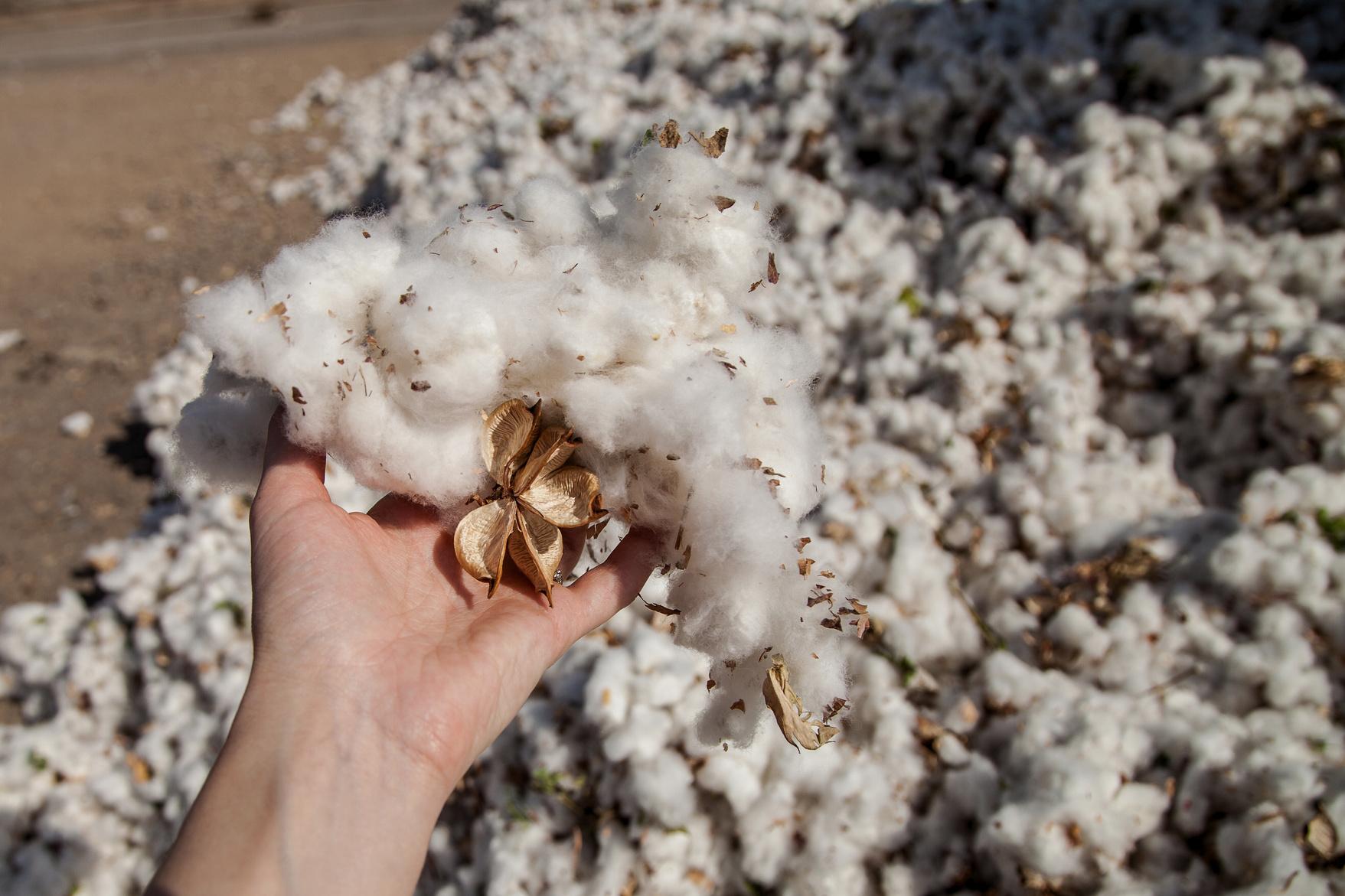
Beyond Cotton is a cotton alternative trying to respond to the high demand yet limited supply of cotton, as well as the environmental strain that the corp puts on vital resources like water. Beyond Cotton is made using 100% renewable fibres composed of bio-based materials, such as viscose, lyocell, and modal from trees. It is also mixed with post-consumer (recycled) polyester and lycra.

Waste milk unfit for human consumption is used to produce innovative fibres called milk fibre or casein fibre. This fibre absorbs moisture very well as it is hygroscopic in nature. Natural, antibacterial, and antifungal amino acids are present in the fibre.
A regenerated cellulosic fibre that is softer than cotton. The texture is similar to a blend of cashmere and silk. It’s the fastest growing plant in the world and a source of natural and regenerated, cellulosic textile material. It is biodegradable and has antibacterial and UV protective properties. Bamboo fabric is highly breathable.


Denim Privé utilises innovative new fibres in our products such as Refibra, Modal, and ECOVERO. They are regenerative and ecologically sustainable. Regenerated fibre is created by dissolving the cellulose of plant fibre and regenerating it into fibre through the viscose method.

Regenerative cotton is a type of cotton that grows using principles and practices of regenerative agriculture. This means improving soil health, increasing biodiversity, bettering social fairness, and promoting a closed-loop system geared towards benefiting the environment and the local communities. Oftentimes Regenerative cotton gets confused with Organic cotton. While Organic has its merits, it is primarily concerned with avoiding synthetic chemicals and pesticides, while regenerative cotton is a more comprehensive approach to sustainable farming.
Specifically, regenerative cotton farming means using cover crops to build soil health, rotating crops to reduce pest pressure, and using compost and other natural inputs to improve the soil's long-term health. Regenerative cotton farmers also often use agroforestry, which involves planting trees in and around crops to provide shade, promote biodiversity, and improve soil health.
The regenerative cotton used by Kassim Denim is sourced from Turkey and has the regenagri content standard certificate. Furthermore, Kassim Denim issues Transaction Certificates to the customer with any bulk orders.
The reversible jean reimagined encourages the utilisation of space and comfort. This concept encourages minimalism and sustainability. The fabric used to make these jeans are eco-friendly and have gone through the sustainable manufacturing process at Denim Privé. This reversible garment has functional pockets on both sides of the jeans. The ticket pockets on the front are functional. The zipper is attached in a way that makes it easy to fasten no matter which side you’re using. The shank button has two sides to it for fastening. This concept guarantees function and fashion at the same time.
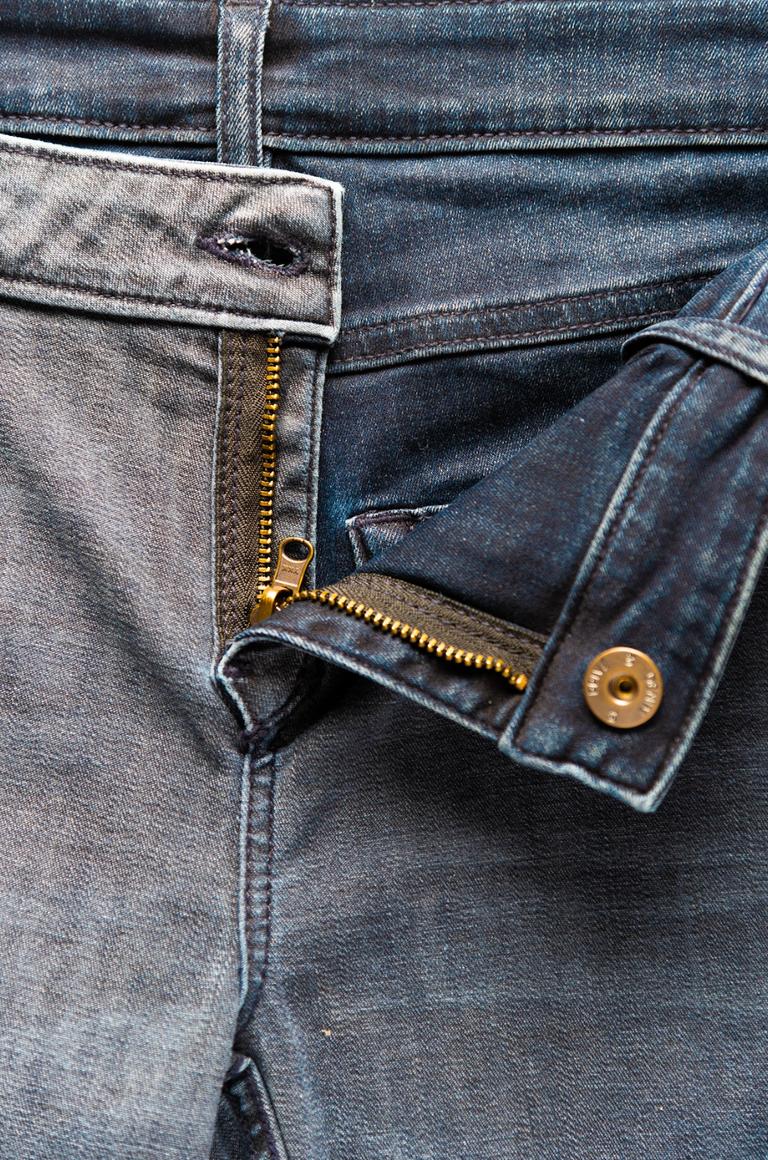

A long-lasting, soft, and breathable fabric from a cellulosic fibre of botanic origin. It is both strong and smooth and provides a sustainable alternative to cotton.
Tencel Matte retains all the sustainable qualities of Tencel, sourced from natural raw materials, particularly wood. What sets it apart is its matte finish, countering the traditional shiny look often associated with Tencel denim. This durable, breathable, and biodegradable material adds a subtler style to denim products. It's the perfect choice for those who appreciate eco-friendliness without compromising on aesthetics.

Tex2Tex is a low-impact, cost-competitive and fully scaled thermomechanical textile-to-textile recycling technology for pre and post-consumer polyester textile waste. Kassim Denim joined forces with Earth Protex to use their Tex2Tex initiative. It uses an under-utilised waste stream: post-industrial textile waste.

SOKO sought a way to eliminate the use of pumice stones and permanganate in the washing process while still creating a rich and authentic fading process. They achieve this through the use of Sokostone J-Rex and Lumia. They also reduce water consumption as compared to a typical washing process.
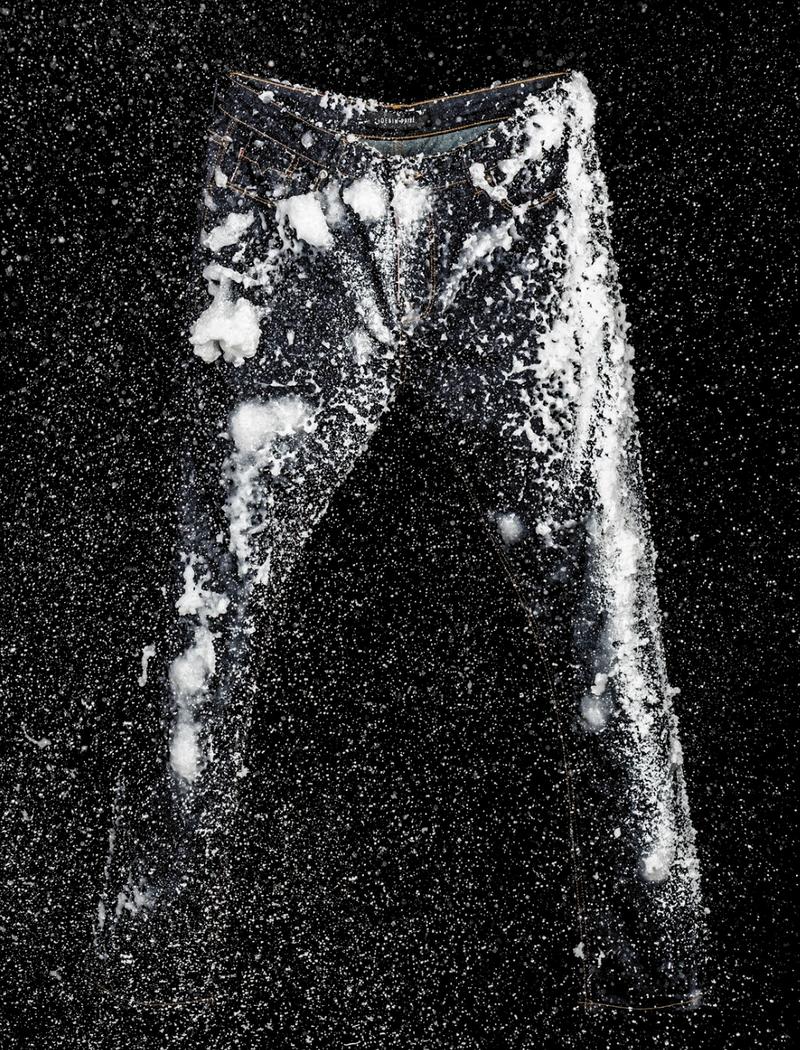
This sustainable alternative to the traditional washing process reduces water consumption by 80%. The process involves the application of chemicals in Snow Denim through smart foam technology at room temperature. The method also reduces energy consumption and increases productivity.
At Denim Privé, we further con reduce waste, and increase eff precision cutting technology, spreaders optimisation softwar robotics.


Our washing processes use Tonello UP and Yilmak’s Rainforest technology to dramatically reduce water, steam, and chemical usage while increasing daily production by up to 50-70%. YILMAK
Rainforest’s Silver Liner can conserve up to 25%, and Tonello Normal can conserve up to 22% of water consumption during the washing process.
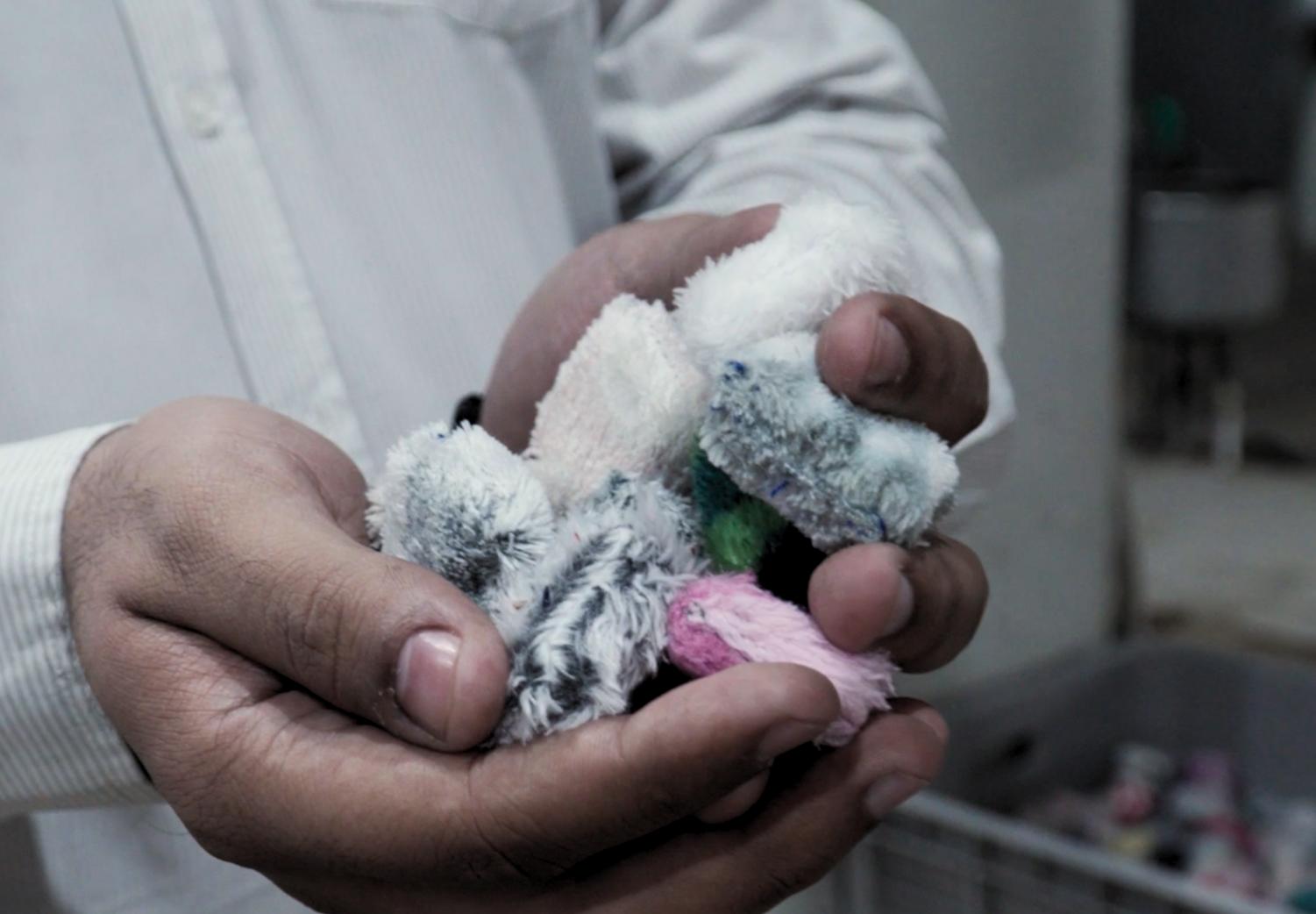
Eco Grit is an innovation in textile washing. Instead of stones in washing machines, it uses cork granules covered with special fabric. Eco Grit gives a more consistent look to the fabrics than stones do and it can be reused (over 100 times). This means the life of the machine is extended and transportation is less intensive. CO2 emissions are reduced as Eco Grit is reusable, biodegradable, doesn’t damage the fabric, reduces transportation, and creates zero slurry.
We equipped our operations with the revolutionary Gerber Garment Technology that allows us to maximise efficiency and reduce waste through state-of-the-art software and automation.

Tukatech applications combine traditional fashion production's artistry with modern manufacturing's efficiency, culminating in an end-toend fashion technology powerhouse.
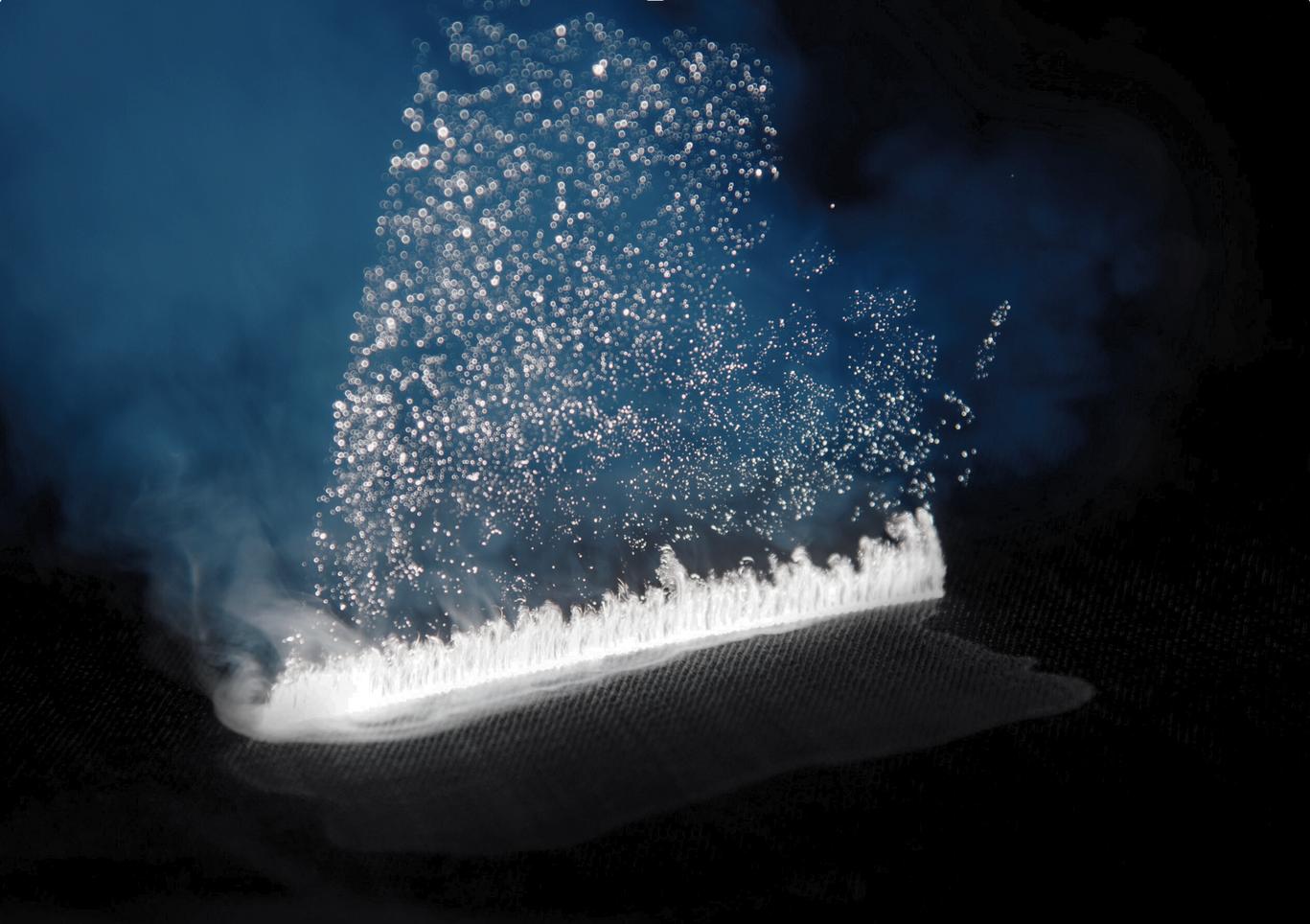
We use Ozone to treat garments through a zero-discharge process that significantly reduces water consumption.
Achieve vintage looks using laser technology, reducing the need for chemical dyes.
A zero-discharge process where nanobubbles of air apply chemicals to fabrics, dramatically, drastically reducing water consumption.

Air Drying at Denim Privé has taken over. It’s a sustainable approach that taps into old ways and makes them new again to reduce the demand on resources and damage from too much heat on our finely made denim.
Denim Privé has three air drying hangers. Each hanger can dry about 500 garments per hour. This means that at total capacity, Denim Privé is producing 1,500 garments per hour or 20,000 garments per day.
There are several automated that Denim Privé uses on a r basis: Automated Pocket, Loo Attacher, Automated Welt Mac Automatic Decorative Stitchi
As the names suggest, the fu these machines are making po loops, attaching buttons, et without the need for manual which means that automation these processes much more ef

